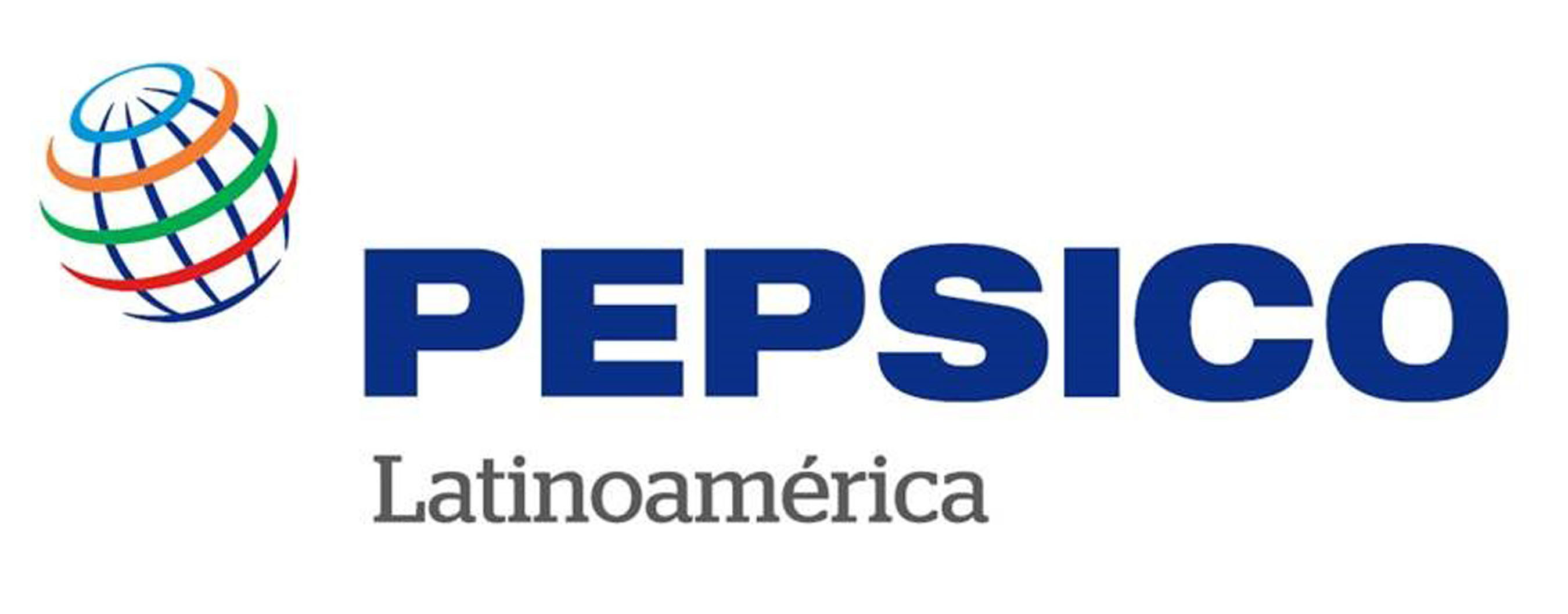During the Sustainable Innovation MBA (SI-MBA) Practicum project, students work as consultants on sustainability-related innovation challenges that have been proposed by sponsoring companies. Host organizations have included leading B Corporations, sustainable development consultancies, early-stage social enterprises, and globally recognized companies seeking to advance ethical business practices.
The deliverable for the Practicum is a detailed and comprehensive business/action plan for the host organization. By the end of July, students pitch their comprehensive business/action plans to a panel of faculty, businesspeople, entrepreneurs, and financiers, along with representatives of the host organizations. A successful Practicum pitch is required for graduation.
Explore previous Practicum projects and host organizations below and how our SI-MBA students made a difference.
2024-2025 Practicum Projects
Cascade Engineering & Noble Polymers
Creating a Comprehensive Strategy for Cascade Engineering to Facilitate High Level Growth Within the Circular Economy
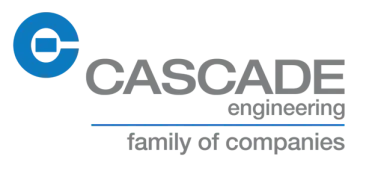
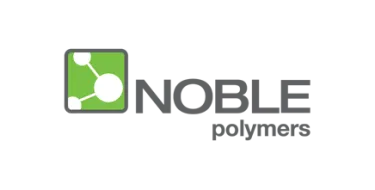
Cascade Engineering, founded in Michigan over 50 years ago, is one of the largest B Corporations and is certified Woman Owned, established on the principles of sustainable business and triple bottom line. The company specializes in large-plastic injection molding to solve unique manufacturing challenges for durable goods within waste management and the automotive industry. Noble Polymers is a division within Cascade Engineering focused on engineering compound plastic solutions and circular applications for post-consumer, landfill-bound and bio-based resins. The growth of Cascade, and its family of brands, is fueled by operational excellence, innovation and strong brand ethics.
Noble Polymers has worked for years to determine how to best compound various waste streams with commodity ingredients. Noble is now seeking new uses for these feed streams through partnerships to support commercial growth, and to establish leadership within the circular economy.
MBA students will focus on supporting the Noble Polymers team by identifying growth opportunities in new markets for specific product use and government funding opportunities as well as cost-benefit analysis. The team will further support Cascade Engineering by conducting life cycle analysis and recommending strategies to communicate its sustainable value proposition within the durable plastics manufacturing industry.
The Center For Post Carbon Logistics
Forming an Investor-Ready Business Plan to Serve as Both an Operational Subsidiary of the Center, and a Template for Future Sail Freight Operations
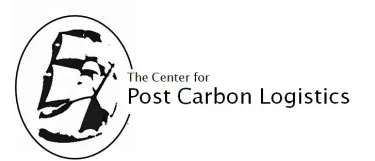
The Mission of The Center for Post Carbon Logistics is to research and assist in the implementation of appropriate post carbon maritime technology needed to keep commerce and transportation viable by responding to the interrelated connectivity, communication, equity, economic, ecological, and energy crises of the 21st Century. A non-profit organization based in Kingston, NY, the Center is working to make sail freight viable in the United States, including assisting with kinetic and logistics planning operations, and planning for infrastructure.
The project for this practicum is to develop an investor-ready business plan which can serve as both an operational subsidiary of the Center, and a template for other sail freight operations in the near future. The problem statement developed by the team thus far is “How does the Center for Post Carbon Logistics reduce reliance on carbon-intensive transportation by expanding the availability and value creation of economically viable sail freight businesses; through the creation of an accessible business plan capable of generating capital and cargo for non-traditional entrepreneurs looking to create the sail freight businesses of the future?”
The business plan will include financials, marketing, market identification, corporate form, customer identification, and other elements necessary for launching sail freight operations on coastal and inland waterways capable of competing against conventional trucking. Auxiliary plans for small-scale experimental futures operations to increase acceptance of the idea of sail freight may also be included where feasible. This plan will translate the experience of projects such as Schooner APOLLONIA into the language of business, bridging the gap between sailors and investors which has prevented the rapid scaling of this climate friendly industry for the last 15 years.
Dynapower
Market Analysis of Trends that Affect Expansion of Core Products to New Customers and Demanding Applications

Dynapower specializes in large-scale energy storage and power conversion equipment providing critical behind-the-scenes support for getting renewable power from source to consumer. Headquartered in South Burlington, Vermont, Dynapower designs, manufactures, and tests its equipment on-site and with long-term partners in Mexico and India. Their products are in operation in more than 60 countries, serving key partners in the energy and defense industry. As the clean energy transition gains momentum worldwide, Dynapower is poised to expand the market for its core products to new customers and demanding applications.
Our team will provide extra horsepower to Dynapower by creating a market analysis of the trends that will affect this expansion. Our focus areas will include examining current geopolitical factors affecting manufacturing and shipping, potential efficiency gains in Dynapower’s product lifecycle and management systems, new customers for their core product line, and actions to support Dynapower’s ESG goals. The output at the conclusion of the practicum will be a complete roadmap towards market expansion over the next 3-5 years. The SIMBA team’s work will play a key role in maintaining Dynapower as a valued member of the Vermont green power ecosystem and advancing the company as a leader in the international clean energy market in the coming years.
Encore Renewable Energy
Comprehensive Sustainability Audit to Quantify Company's Impacts Beyond ESG Reporting

Encore Renewable Energy develops, owns, and operates community-scale solar and energy storage projects across the Northeast and beyond. As a certified B Corporation and leader in socially responsible business, the team specializes in impact-driven renewable energy development and long-term asset ownership. As industry leaders in turning brownfields to brightfields, these projects add additional value with innovative dual-use solutions like pollinator-friendly groundcover and solar grazing. Bringing a deep commitment to the communities in which they operate, they are revitalizing communities and creating a cleaner, brighter future for all.
Our team will conduct a comprehensive sustainability audit of Encore’s current operations in order to quantify the company’s impact beyond existing ESG reporting. This project will review the company’s existing and historical practices to provide actionable recommendations for improvement in the following areas: carbon footprint, water usage, waste generation, land use impacts, labor practices, supply chain transparency, and community engagement. The top priority is to create a framework that the company can use to measure operational impact and cost of mitigation efforts, provide qualitative data for communities to understand project impacts, and grow their competitiveness in the solar energy sector.
Global Foundries
Developing a Business Case for a Nature-Strategy in Semiconductor Manufacturing

GlobalFoundries (GF) is a leading manufacturer of essential semiconductors the world relies on to live, work and connect. The complex, differentiated chips GF manufactures enable billions of electronic devices that are pervasive in daily life and nearly every sector of the global economy. GF has four world-class manufacturing sites, across the United States (New York and Vermont), Germany, and Singapore. GF is dedicated to sustainable, ethical and responsible business practices, including stewardship of the environment. GF has stated clearly its commitment to sustainable operations and fighting climate change as it continues its sustainable manufacturing journey.
The primary objective of our project is to assess and benchmark GF's current operations using the Taskforce on Nature-Related Financial Disclosures (TNFD) framework with a specific internal focus on GF’s four fabrication facilities (fabs) and their impact on biodiversity. GF looks forward to data and insights from the SIMBA team that could lead to a better understanding of potential impacts, risks, dependencies, and opportunities related to biodiversity to help inform the company’s sustainability strategy. Drawing from our team's in-depth findings, we will develop three to five high-impact initiatives designed to yield new insight for GF to consider as it drives sustainability leadership within the semiconductor industry.
Hanson + Doremus
Creation of Novel Framework that will Enable H + D to Identify, Analyze, and Monitor the Social Impact of Public Companies Committed to Solving Social Problems

Hanson + Doremus is an independent investment firm based in Burlington, VT. With a staff of 14, H + D primarily serves individuals and families in Vermont and across the US, managing over $800 million in assets (as of 12/31/24). As a fee-only fiduciary with 30 years of experience, the firm conducts in-house investment research and offers clients individualized service and actively managed portfolios.
Hanson + Doremus aims to identify financially attractive public companies whose core business is focused on solving social problems. As a firm that offers clients an Active Socially Responsible Investment strategy, H + D seeks to ensure its portfolio includes profitable companies that address both environmental and social issues. To achieve this, our team will familiarize itself with H + D’s in-house approach to financial analysis and equity valuation, which will inform the design and documentation of a novel framework. This tool will enable H + D to identify, analyze, and monitor the social impact of public companies committed to solving social problems.
Morningstar Sustainalytics
Driving Decarbonization: Insights for Effective Climate Transition Management

Morningstar Sustainalytics is a leading independent ESG and corporate governance research, ratings and analytics firm that supports investors around the world with the development and implementation of responsible investment strategies. For more than 30 years, the firm has been at the forefront of developing high-quality, innovative solutions to meet the evolving needs of global investors. With solutions tailored for asset managers, institutional investors, and corporations, Sustainalytics enables seamless integration of ESG factors into investment strategies, risk assessments, and corporate decision-making. By delivering actionable insights on pressing global issues such as climate change, human rights, and corporate governance, Sustainalytics fosters greater transparency, accountability, and resilience across financial markets, helping to drive sustainable long-term value creation.
This practicum project aims to provide investors with actionable insights into corporate management practices that drive real-world decarbonization. This project will begin with research on corporate transition management practices and historic emissions trends. It will include an examination of industry and regional trends. These key data points around company management practices and GHG emissions will then be analyzed to identify correlations between management practices and progress toward decarbonization. The findings will be compiled into a white paper and presentation to support Sustainalytics and its clients with data-driven assessments and strategic recommendations.
Rhino Foods
Environmental Sustainability: One Bite at a Time
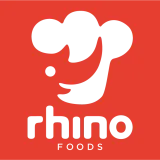
Rhino Foods has been based in Vermont since its founding in 1981 and, chances are, you’ve probably enjoyed their products without even knowing it. Rhino is a leader in a niche market, creating cookie dough and baked inclusions for companies such as Ben & Jerry’s and Sonic. Rhino is known for its workplace culture, commitment to impact through advocacy, and delicious creations.
As a leader in social sustainability and a certified B Corporation, Rhino now set their minds to tackling a new goal: environmental sustainability. Rhino has a goal to reduce their emissions and impact on the environment. This practicum will focus on two deliverables. First, creating a measurement framework to quantify carbon emissions for 2024 and beyond. Second, setting sustainability goals and providing actionable, cost-effective recommendations for Rhino to achieve those goals. Working closely with Rhino’s team and employees, our team will work to identify areas of impact, quantify and measure Scope 1 and 2 emissions, and implement a path forward for the company to meet their goals, one bite at a time.
Seventh Generation
Develop a Roadmap for Seventh Generation’s 2030 Plastic Elimination Goal
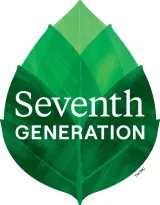
Company Overview: For over thirty years, we’ve been on a mission to transform the world into a healthy, sustainable, and equitable place for the next seven generations—and beyond. We consider our products solutions that help address global issues that affect us all, such as air pollution, water health, plastic waste, and consumer trust. We formulate using renewable, bio-based ingredients rigorously tested to be safe for your family, and we list what’s in our products right on the package.
Background: Plastic pollution is a significant issue due to improper disposal and greenhouse gas emissions from fossil fuel-derived plastics. Many plastic products are designed for single use, prompting policies in Europe and the U.S. to pressure businesses to reduce their plastic footprints. Seventh Generation has set ambitious 2030 goals to eliminate 75% of petro-based virgin plastic packaging and 25% of total plastic packaging per use. Achieving these targets requires company action and industry collaboration, including innovation in sustainable materials and advocating for policies that support a plastic-free future. Seventh Generation is committed to this work. Our current plan is not getting us there and we need a Roadmap to guide key business activity from now to 2030.
Sustainable Innovation Challenge: In collaboration with the Corporate Consciousness team and key stakeholders, the SI-MBA Team will develop a 3-5 year plan for Seventh Generation to achieve its 2030 plastic APR (absolute plastic reduction) goal, including levers for commercial, technical and advocacy activities. The plan will model the role of each lever and identify key work streams, resources, work stream deliverables, metrics and milestones for plan implementation. Where relevant, the plan will include a financial overlay of key activities with cost/benefits and impacts on the P&L. Travel Expectations: Travel to the company’s office during the 8 weeks. All travel subject to limitations and public and company guidance.
Spire Solutions
Empowering Spire to Achieve Better, Faster Decision-Making through AI and VR-Driven Training Solutions
Spire Solutions is a defense tech startup focused on improving mental performance through simulated training environments. Spire’s goal is to create immersive scenarios that replicate real-life decision making dilemmas through the use of powerful AI and VR tools. The software design is based on the simple premise that good judgement comes from experience, and experience comes from bad judgement. Spire seeks to provide everyone with the opportunity to reach their full potential by making bad judgements, and therefore gaining experience, in safe, simulated environments.
This practicum will provide the Spire founder with the time and advisory resources to take the startup from idea to reality. The Spire Solutions practicum goal is to generate a minimum viable product, test the product and gather qualitative feedback data, and prepare a venture capital funding pitch by the conclusion of the practicum. A successful practicum for Spire Solutions will poise the startup to begin pitching for venture capital funding for the company’s seed round as early as September 2025.
UNREAL
Development of a Business Strategy Aimed to Strengthen UNREAL's Ability to Identify Company Actions and Business Decisions Authentic to the Change they Seek to Drive
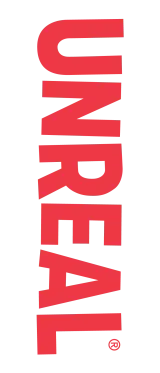
Founded in 2010, UNREAL Snacks is a mission-based chocolate snack company operating in the CPG confection sector selling better-for-you chocolate snacks with less sugar and no artificial ingredients. The company currently sells D2C online and B2B in 25,000+ retail locations nationwide including Whole Foods, Costco, Walmart, Kroger, Publix, Target and online at Thrive Market and Amazon.
The aim of this project is to develop a business strategy to strengthen UNREAL’s commitment to their mission by identifying company actions and business decisions authentic to the change they seek to drive. To determine the best path forward, the team will examine three critical areas. They will start by analyzing purpose-driven brand strategies across various companies and industries. From there, they will conduct a B Impact Assessment to evaluate the requirements for B Corp certification and the potential added value. The team will then take a deep dive into the company’s operations and culture to assess how these workplace elements complement UNREAL’s story. Finally, they will deliver a recommended set of actions to strengthen the company’s mission-driven brand identity.
Previous Practicum Projects
2023-2024
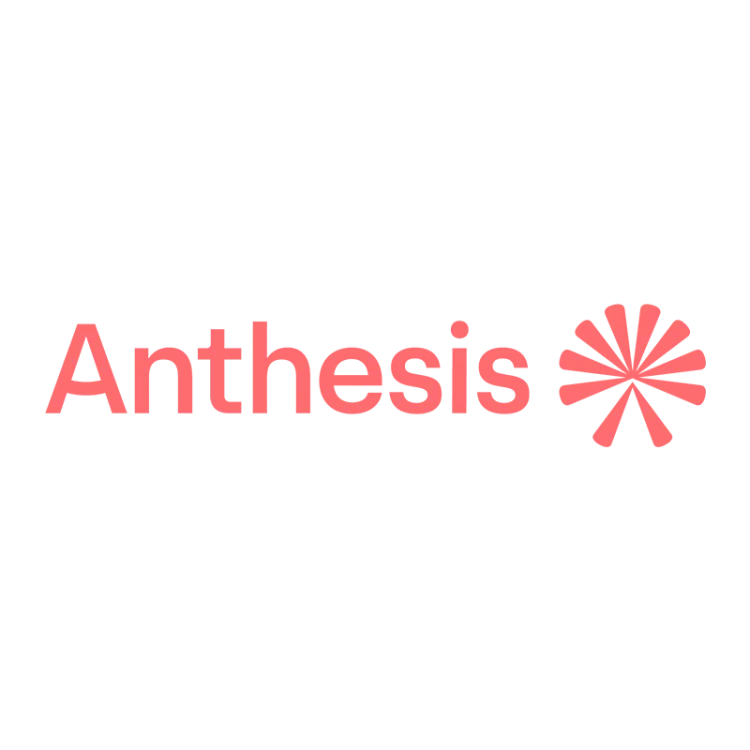
HOST: Anthesis Group
Project Title: White Paper on the Cost of Inactions on Nature Related Risk
Nature is a blind spot for major companies. While businesses across all sectors and sizes rely on natural capital (e.g., ecosystem services, natural resources) to operate, if these benefits aren't accounted for, it could result in unmitigated risks to operations. Although adopting a laissez-faire approach towards nature has worked out to date, it's becoming increasingly clear that human activities such as land and sea use change, direct exploitation of organisms, climate change, pollution, and the introduction of invasive non-native species are causing significant changes to ecosystems. These changes indicate we can no longer assume these ecosystems will last in their current state in perpetuity, creating significant risks for businesses and the wider economy. If businesses fail to rein this in, they’ll have to brace themselves for massive disruptions to their operations, supply chains and the economy as a whole.
The SI-MBA team produced a 20–25-page white paper for Anthesis, including an appendix, that assists businesses of all sizes and sectors in making the business case for taking action on nature-related risks. The intention is to help guide organizations in both public and private sectors in evaluating opportunities to future-proof their businesses by prioritizing investment in nature today. Readers of the white paper will learn how to develop and communicate the business case to act on their nature-related impacts and dependencies, such as water scarcity, water quality, deforestation, biodiversity loss, pollination, etc.
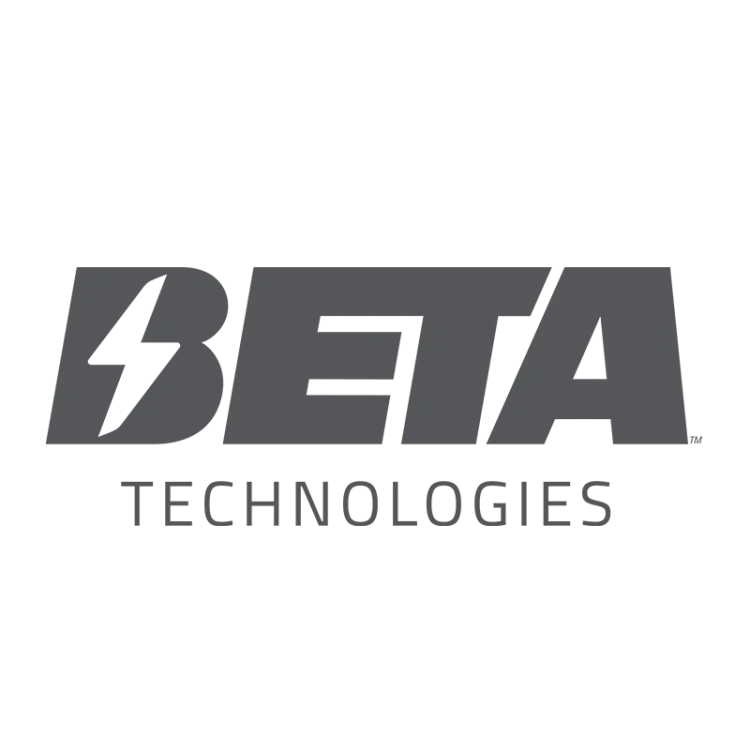
Host: BETA Technologies
Project Title: Circular Economy Project - Aircraft Batteries
BETA Technologies is a South Burlington, VT-based aerospace company developing a fully electric conventional takeoff and landing aircraft, vertical takeoff and landing aircraft, and a national charging network. BETA’s vision is for a low-impact aircraft and transportation system that enables customers to move people and cargo around the world safely, cost-effectively, and with minimal environmental impact. The company’s first aircraft, ALIA, is expected to be FAA certified in 2025.
BETA’s electric aircraft operates on purpose-built battery packs designed to optimize energy efficiency and aircraft performance. Meeting the range requirements promised to clients is crucial, which limits the usable life of the batteries in the aircraft. Depending on the use profile, packs are anticipated to remain effective in the aircraft for two to three years before replacement is necessary. When replaced, the batteries will retain about 80-90% of their capacity, maintaining significant value.
This project aims to identify and develop business use cases for the battery’s second life, with a goal of minimizing battery life cycle impact. The team will evaluate solutions for this environmental and business challenge using three key metrics - how feasible the solutions are; the positive and negative environmental impacts of the solutions; and the economic viability of the solutions. The team will start with baseline comparisons of potential opportunities in three categories - in-house, third-party, and recycling solutions. From there they will have the opportunity to dig deeper into solutions that are most promising and further develop the business case.
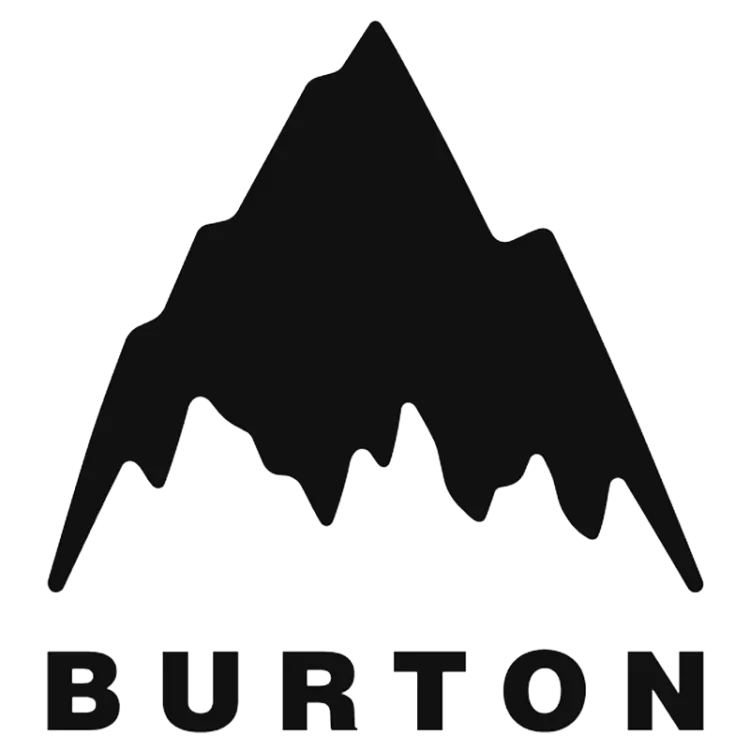
Host: Burton Snowboards
Project Title: Circularity at Burton
Jake Burton Carpenter founded Burton Snowboards in his Vermont barn in 1977 and dedicated his life to snowboarding. Burton is largely credited with mainstreaming the hobby of snowboarding into the sport it is today. The company offers a wide range of products including snowboards, boots, bindings, outerwear, apparel, and bags. As one of the world’s largest and most popular snowboard and winter apparel manufacturers, Burton is also recognized as an industry leader in sustainability.
Burton is set to reveal their 2030 sustainability goals this year and is currently finalizing reporting on their ambitious 2025 goals. This practicum will focus on softgoods circularity (outerwear and apparel). The team will be responsible for both external and internal desk research on topics including waste and pollution in the textile industry, innovations within circularity, as well as Burton’s company growth objectives and strategy plans. Deliverables include mapping service providers and partners, performing a competitive landscape analysis, and providing the Burton softgoods team with specific recommendations regarding circularity, both in the short and long term.
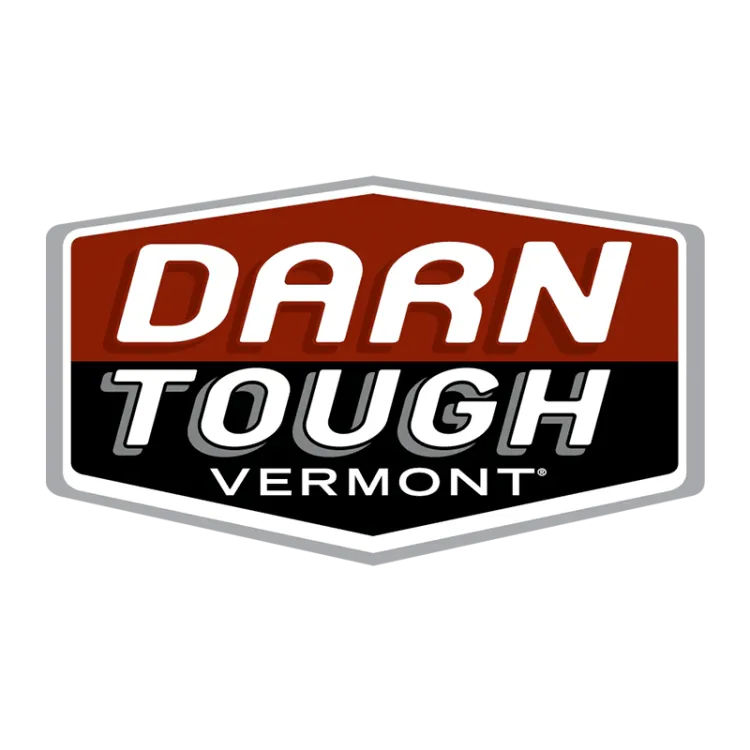
Host: Darn Tough
Project Title: Creating a Sustainable International Sock Return and Recycling Program
Darn Tough Vermont is an American manufacturer of premium, all-weather outdoor and lifestyle socks and a member of the Cabot Hosiery Mills family of brands. Since the brand started in 2004, all socks have been backed by the industry’s original unconditional lifetime guarantee, allowing customers to return socks for another pair if they are not “the most comfortable, durable and best fitting socks.”
The practicum project is an opportunity to examine Darn Tough's domestic and international lifetime warranty programs. Presently, the domestic program requires socks to be returned to a participating retailer or ideally to Darn Tough’s headquarters. The socks that come back to Vermont allow an opportunity for data collection on wear patterns and damage before the socks are then downcycled at a textile recycling facility. Internationally, customers provide photo evidence of wear and then the recycling or trashing of the sock is up to the individual.
It is crucial that any proposed modifications to the warranty program balance the goals of a strong and well-aligned customer experience, overall financial objectives, and environmental sustainability while aiming to build a uniform solution for global implementation. The project will research the environmental and financial impacts of physically returning socks to Darn Tough’s Vermont headquarters, as well as alternative warranty solutions. Additionally, the project will evaluate Darn Tough’s existing and potential future relationships with recycling facilities and explore various recycling options, both domestically and internationally.

Host: Green Sports Alliance
Project Title: Optimizing Collegiate Sport Memberships - A Strategic Framework for Success
The Green Sports Alliance is the largest and most influential driver of environmental and social responsibility across the sports industry. Since 2010, the Green Sports Alliance has accelerated positive change for leagues, organizations, teams, venues, and communities in the United States and across the globe. The Green Sports Alliance offers sport membership services to both professional and collegiate organizations as well as corporate membership to solutions providers in the industry. They also provide guidance and expertise to their member organizations in order to achieve a more sustainable and just sport and entertainment industry.
The Green Sports Alliance has primarily focused its membership efforts towards professional sports since its inception. Despite similarities between professional and collegiate sports, these two entities should be approached and served differently. This practicum project will gather measurable and actionable feedback from current and potential collegiate members to inform how the Green Sports Alliance can best position themselves to serve the collegiate market and scale their membership reach.
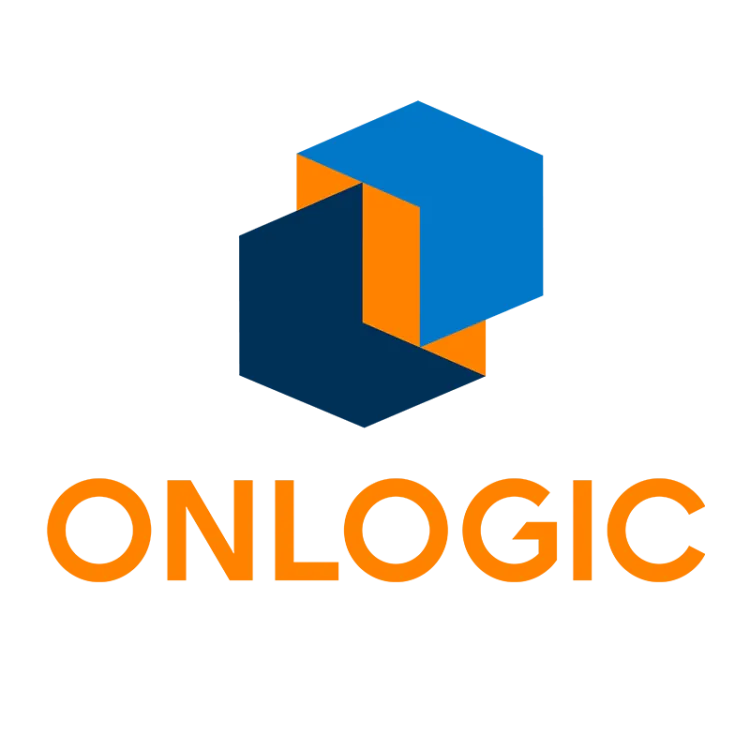
Host: OnLogic
Project Title: Advancing Sustainable Solutions Inward and Outward
OnLogic is a Vermont-based manufacturer of industrial computer hardware and technology solutions for deployment in challenging environments. They have operations in Vermont, North Carolina, Asia, and Europe. Their European location will soon be subject to new EU sustainability reporting regulations (CSRD & ESRS), requiring OnLogic to create comprehensive reports on Environment, Social, and Governance (ESG) aspects. OnLogic also seeks to provide customers with more information and transparency on the environmental impact of their products.
Our team will jumpstart OnLogic’s ESG framework to support accurate reporting within the ESRS regulations, complete the work necessary, and outline the remaining work required to ensure OnLogic complies with EU sustainability standards. Additionally, we aim to propose environmentally conscious practices that OnLogic can implement to further their commitment to being a climate-conscious company. These recommendations will include the creation of sustainability goals and measures for operational efficiency.

Host: Plink!
Project Title: Plink! Positioning for Scale
Based in Vermont, Plink! is a distinguished electrolyte beverage company with the belief that there is a need for an alternative to canned and bottled drinks. Plink! aims to reduce the consumption of single-use plastic waste in an effort to combat climate change. By effortlessly adding one tablet to 12 oz of water, Plink! leads individuals on a journey where they can savor a flavorful, effervescent beverage enriched with sodium and potassium electrolytes.
The overarching objective of the project is to propel the growth of Plink! The team is tasked with addressing pivotal questions, including how to scale the business effectively, broaden the demographic and customer base, and, crucially, navigate and accomplish these objectives within the constraints of a significantly limited budget. In addition, we will conduct a thorough analysis of the existing category landscape, identifying white spaces of positioning and underserved segments compared to existing players. This deep dive into the market will help us understand how differentiation plays a crucial role in Plink!'s success. Our recommendations will not only focus on scaling and demographic expansion but also on strategically positioning Plink! in the market to leverage identified white spaces, allowing the team to effectively direct their marketing and product development efforts.
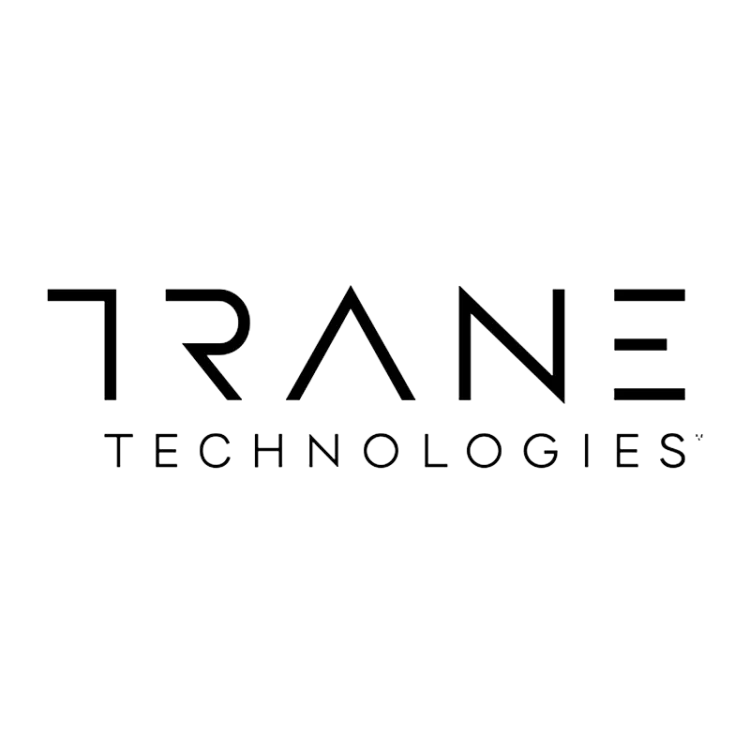
Host: Trane Technologies
Project Title: Developing a Profitable and Scalable Business Model for a Passive Cooling Solution for Food Street Vendors in Developing Countries
In 2021, Trane Technologies launched Operation Possible, an employee-powered open innovation platform where Trane staff help define and address the most pressing and persistent environmental and social problems across the world. For their first challenge (addressing food waste and hunger), Trane Technology’s` employees designed a retrofittable, passively operated cooling canopy for the street vendors’ cart. These cooling canopies were designed and developed by Trane Technologies engineers, successfully pilot tested across various parts of India. Results have shown that it not only reduces food waste at the last mile of food chain, but also ensures doubling the income for street vendors. Trane hopes to build on the success of their pilot programs, which resulted in less produce weight loss and increased revenue for street vendors using the Trane cooling carts, to help mitigate food waste and hunger on a global scale.
The practicum objective is to build a scalable business model for the cooling canopy cart in India as well as other potential markets in developing economies. This will be supported by market segmentation, stakeholder analysis, cost-benefit analysis and address potential partnerships and financing methods.
In addition to working on the cooling cart, SI-MBA students will provide recommendations for ways future social innovation projects could be developed and implemented through Operation Possible.

Host: TS Designs
Project Title: Designing an Economic Model for Maximizing Black Walnuts as a Resource for Apparel, Food, and Other Enterprises
TS Designs is a B2B ethical apparel company based in North Carolina that has operated for over 45 years. They innovate in sourcing and manufacturing, using natural fibers and dyes while employing eco-friendly screen-printing technology. A triple-bottom-line approach persists throughout their design and processes. They source cotton locally and deliver value to farmers by negotiating a fair price instead of going through a commodity vendor. TS Designs emphasizes transparency in their supply chain and work to ensure quality and local impact economically, socially, and environmentally.
TS Designs hopes to help facilitate the creation of a business model that supports the collection and distribution of black walnut parts to all necessary players, enabling a thriving local market ecosystem. As part of this project, the team will aid in drafting the roadmap for an actionable system for collecting, processing, distributing, and utilizing black walnuts in North Carolina. The foreseeable intermediary activities involved in delivery will include mapping the value chain associated with black walnuts, meeting constituents throughout the chain to understand their potential stake, and defining what is required of the entity(ies) to facilitate value chain relationships in the service of stakeholders.
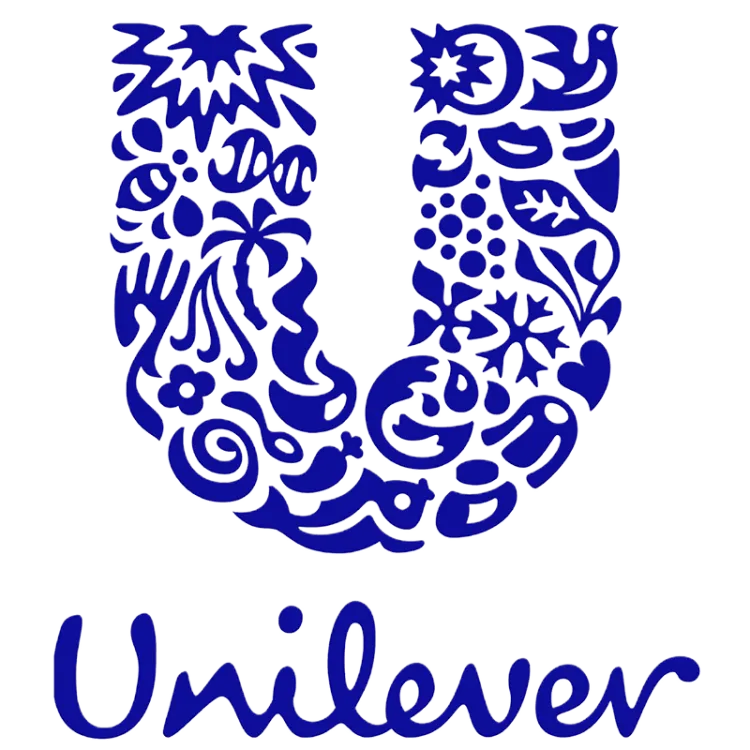
Host: Unilever
Project Title: Building the Economic Case for Unilever’s Investment in Open-Source Market Development for Impact Sustainability Data
Currently, there is an increasing focus on the need for sustainability data tied to corporations’ upstream supply chain operations in response to an evolving regulatory landscape and increased consumer demand for sustainability in the consumer goods industry.
This practicum will work on building a basic economic framework that quantifies the economic value added by reducing the burden of impact sustainability data collection on upstream supply chain actors through strategic investment in open source market development. The aim is to evaluate Unilever’s ability to leverage the talent and expertise of the open-source developer community to minimize the onboarding costs and ongoing sustainability data collection costs for upstream value chain actors across the Unilever supply chain network. The team will strive to stand up an economic model to quantify the net value created, captured, and transferred to support a strategic investment in this space by examining a single commodity throughout the value chain using our proposed hypothesis.
The framework will be presented as a business case, for internal purposes, with the aim of supporting or discrediting a recommendation for Unilever’s investment in open-source solutioning for democratized access to impact data, ultimately to accelerate progress on Unilever meeting its Climate goals tied to the Unilever Compass Strategy.
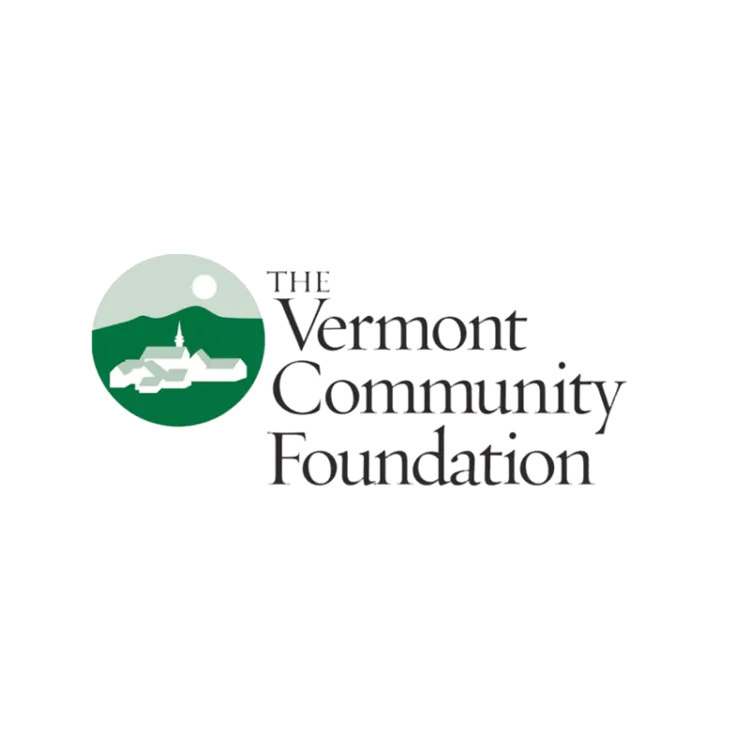
Host: Vermont Community Foundation
Project Title: Implementing Steward Ownership
Founded in 1986, The Vermont Community Foundation has been helping Vermonters help Vermonters for thirty-eight years. Their mission "Better Together", aims to bring together philanthropic individuals and resources to make a tangible difference. They envision a state where every Vermonter is at their best -- caring for each other, enjoying equal opportunities, understanding and respecting one another, living in harmony with the environment, engaging in civic life, and thriving in health and inspiration. A nimble and curious organization, they have deployed $60 million annually through grants and investments to bring this vision to life.
The primary contact for this practicum at the host organization is Lawrence Miller, Senior Advisor for Mission Investments at VCF. With a background as the founder of Otter Creek Brewing and experience as a consultant for organizational change, Lawrence has the expertise to support businesses in Vermont's small communities, aiding them in sustaining economic viability. Dan Smith, the President of VCF and a seventh-generation Vermonter, will also be involved in this project.
VCF is committed to bridging the opportunity gap for Vermonters seeking to establish secure futures. They view the steward ownership model as a potent mechanism to maintain vital Vermont-based businesses within their communities. Our objective is to formulate a framework enabling VCF to receive active businesses as contributions and assume steward ownership. This model offers an alternative to traditional shareholder value dominance, facilitating a focus on long-term impact goals.
Our project deliverables include: (1) a board policy for VCF's engagement in steward ownership, (2) a procedure for high-level management with guidelines for the steward ownership program, and (3) a concise document and presentation designed for legal and accounting professionals, elucidating the steward ownership concept for their clientele.
Working on a project and creating a viable plan for a steward ownership program at Vermont Community Foundation (VCF) we anticipate having a set of inherent challenges. The overarching challenge our team has identified for working on this project is creating a set of standardized procedures that VCF will be able to use regardless of company type, size, and desired outcomes. This can then be broken up into a set of smaller issues within: (1) the variety of goals by those looking to transfer their company into steward ownership, and those VCF-associated individuals taking up that mantle (2) setting this up in a way that will ensure longevity of the stewardship program. In a larger scope, once a program is designed, finding a way to communicate the benefits and structure of steward ownership is set to pose a challenge as it contradicts the traditional profit driven outcomes.
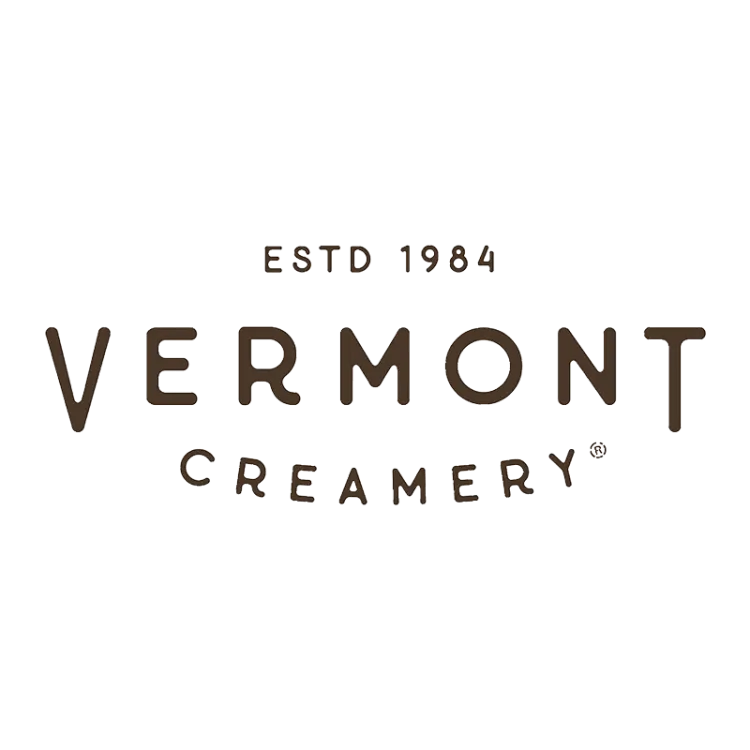
Host: Vermont Creamery
Project Title: Exploring Grass-Fed Butter
Vermont Creamery, founded in 1984 and operating as an independent subsidiary of Land ‘O Lakes since 2017, specializes in making artisanal cheeses and cultured dairy products. As a certified B-Corp, they are equally committed to creating great-tasting products and leaving a positive impact on the world. Throughout their history, they have been recognized across their suite of products as a leader in the global cheese community. Vermont Creamery focuses on sustainable and ethical practices, supporting local family farms and sustainable agriculture in New England. Their blend of traditional and innovative techniques results in high-quality, flavorful cheeses. This commitment to quality and community has established them as a respected name in the artisanal cheese industry.
Vermont Creamery is considering the production of a grass-fed butter made in the Green Mountains. To determine the viability of this venture, the SI-MBA practicum team will conduct a comprehensive evaluation of a possible product launch. This would include researching the potential of a Vermont-sourced grass-fed cream supply, developing a full financial analysis of the project, assessing supply chain logistics, and using P&L statements to investigate whether a domestic grass-fed butter from the Green Mountains could compete with imported competitors. With sustainability in mind, the SI-MBA team will also explore the environmental and ecological benefits of venturing into grass-fed territory.
2022-2023

HOST: Beam Suntory
Project Title: Reducing Scope 3 Emissions with More Sustainable Glass Packaging
Beam Suntory launched a sustainability initiative called Proof Positive in 2020 which set forth ambitious 2030 goals including specific goals around packaging: 100% recyclable packaging, 40% recycled materials by weight, 100% recycled PET bottles and 30% value chain emissions reduction (Scope 1, 2 and 3).
The practicum will work on a project that supports Beam Suntory’s goal of achieving 30% reduction in value chain GHG emissions by 2030. The team will review the current Beam Suntory glass packaging portfolio across many different environmental factors, develop a scorecard to assess each bottle, analyze trends across our portfolio, identify top opportunity areas and make recommendations for improvements. The team will prepare business cases for the bottles with the biggest opportunity for improvement. This will include everything from cost and manufacturability to consumer and customer impact. The team will evaluate how Beam Suntory compares to key competitors by assessing competitive packaging using the same scorecard methodology. They will identify trends in the market and make recommendations that are relevant for Beam Suntory brands. Additionally, the team will conduct an assessment of global legislative activity related to glass bottle packaging, particularly around weight and recycled content and identify risks within the portfolio.
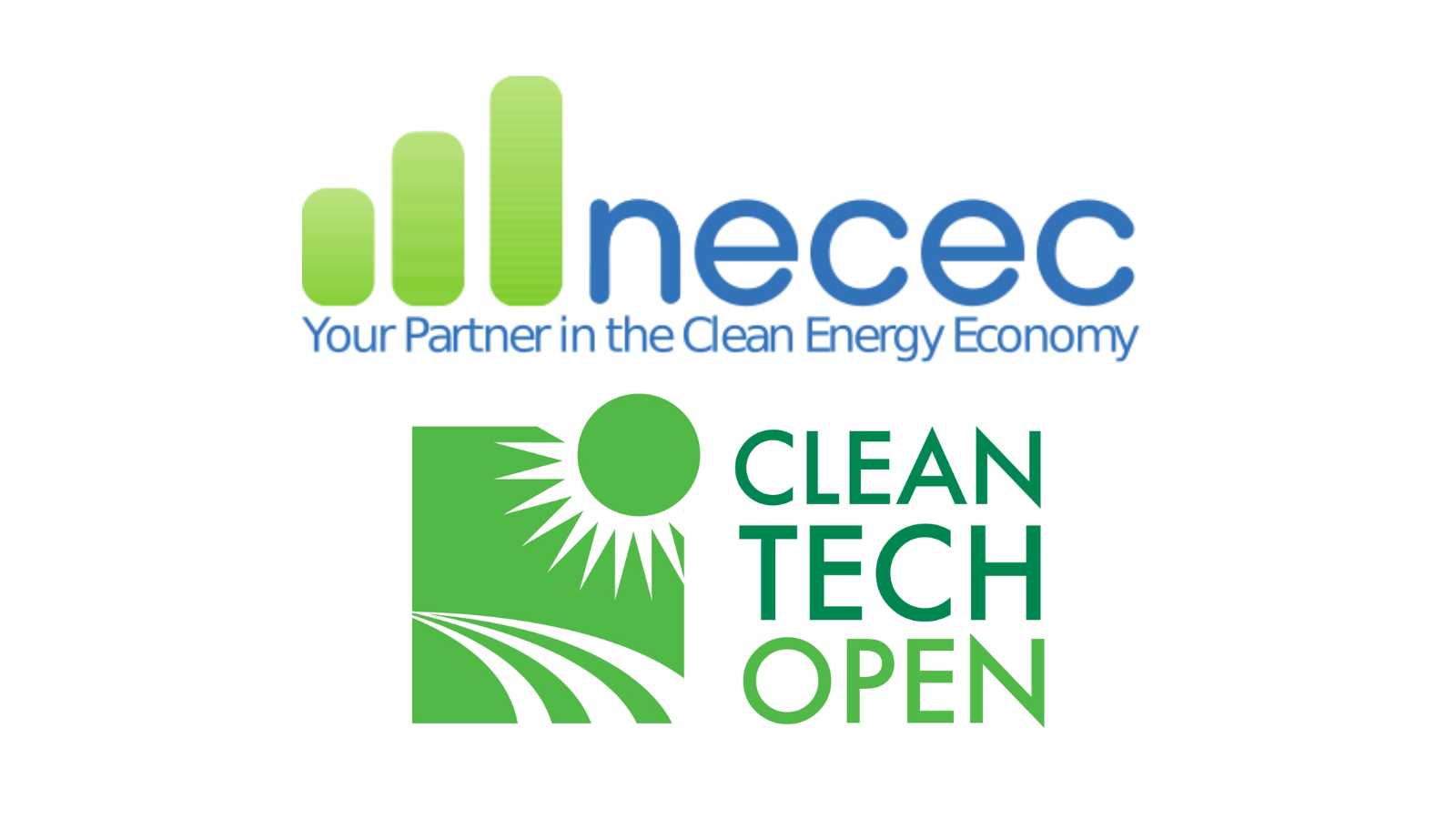
Host: NECEC/Clean Tech Open Northeast
Project Title: Cleantech Entrepreneur Journey and Ecosystem Analysis
Cleantech Open is the world’s oldest and largest cleantech accelerator and provides entrepreneurs and technologists with the resources needed to launch a successful cleantech company. Its mission is to find, fund, and foster entrepreneurs with big ideas that address today’s most urgent energy, environmental, and economic challenges. Cleantech Open provides the infrastructure, expertise, and strategic relationships that turn clever ideas into successful global cleantech companies. In the Northeast, Cleantech Open is led by the Northeast Clean Energy Council (NECEC), which leads the just, equitable and rapid transition to a clean energy future and a diverse climate economy.
The practicum is focused around better understanding the cleantech startup journey and identifying critical barriers that might inhibit innovation along the way. The ultimate goal is to identify key ecosystem partners, optimize the accelerator experience and increase the rate of success for entrepreneurs. The practicum will include conducting research through conversations with partners, investors, corporates, and alumni of the accelerator program to gain insight into the entrepreneur’s journey. The final deliverables for this project are an internal playbook and an external publication summarizing key insights from the research conducted.
Host: FrameworkESG
Project Title: Re-Thinking Materiality
FrameworkESG is a specialty consulting firm that helps clients align their strategies and practices with new social, environmental, and economic realities. The firm creates trust and value for stakeholders including employees, investors, customers, and executives through data-driven analysis and insights. FrameworkESG’s guiding principle is that strong environmental, social, and governance performance and disclosure create value for all company stakeholders, including shareholders. Since its inception in 2003, the company has pioneered the use of stakeholder-driven materiality analyses, client assessments, integration, and communication of ESG risks and opportunities as tools for delivering solutions.
As part of this practicum, the team will research the evolving concept of double materiality as a tool to identify firms’ most important and relevant ESG impacts, risks, and opportunities. The project will explore prevailing ESG materiality practices and applications, the current and evolving legal and regulatory environment, shifting client and stakeholder priorities, and communication and disclosure strategies and frameworks.
As a final deliverable, the team will provide recommendations for adaptations to current processes and strategies, the use of more sophisticated data gathering and analysis tools, as well as for areas for future exploration, with the ultimate goal of continuing to provide FrameworkESG’s clients with the most useful and business-ready ESG analysis and insights.

Host: Glavel
Project Title: Designing a Stakeholder-Focused Brand Strategy
Glavel, Inc. is a manufacturer of foam glass gravel, a lightweight aggregate made from recycled glass. Foam glass gravel is used in both residential and commercial construction as sub slab insulation, in green roofs as lightweight fill, and in the civil sector as structural fill for roadways and bridges. The manufacturing facility in Essex, VT is the only foam glass plant in the world powered entirely by nearly carbon free electrons, which keeps Glavel’s embodied carbon footprint incredibly low, and positions Glavel as an emerging leader in decarbonizing the built environment.
Glavel offers unique value propositions to various stakeholders including architects, engineers, contractors, and homeowners. The practicum project will begin with an initial research and analysis phase focusing on items such as Glavel’s current ESG & sustainability initiatives, construction industry trends, as well as current and potential stakeholders.
The initial market analysis will lay the foundation for a final deliverable; a marketing and communication strategy that aligns the value propositions of Glavel with the needs of the stakeholders they seek to serve. This brand strategy could include a list of potential target consumers, general sales pitch strategy, marketing assets including website update recommendations and an implementation timeline.

Host: Jaipur Rugs
Project Title: Conceptualizing and Communicating the Social Impact of an Artisan-Centric Value Chain
The inception of Jaipur Rugs began in 1978 when the founder, Nand Kishore Chaudhary, sought out to preserve the ancient traditional artform of weaving and tap into a growing demand within the global market for hand-woven carpets. However, N.K. Chaudhary’s vision for the company extended far beyond the quest of a merely profitable bottom line. He saw the opportunity to drive significant social change across the Bottom of the Pyramid by tapping into the skill and artistry of those within this marginalized group (Dalit) by eliminating the need for intermediary contractors. A company that originally started out with just nine weavers and two looms has now evolved into the company that is today, providing livelihoods to over 40,000 independent artisans across 600 different Indian villages, with eighty-five percent of them being women, and 7,000 Tribals.
Through immersive field research in Rajasthan, India, our team will be working to measure the intangible benefits that Jaipur Rugs creates for their stakeholders. This research will be conducted by interviewing the weavers about the impact Jaipur Rugs has had on them, their families, their communities, and beyond. We will explore the practicality of developing certifications or joining existing certifications that will quantify the social and environmental impact of Jaipur Rugs and determine if it would be worthwhile to move forward with these proposed certifications.
Host: Mamava
Project Title: Breastfeeding Through the Lens of Sustainability: Making the Case for Infrastructure and Support for Breastfeeding in America
The category creator of freestanding lactation pods, Mamava provides breastfeeding parents with private, dignified, and comfortable spaces to pump or nurse—at work and on the go. The free Mamava locator app helps breastfeeding parents find thousands of (Mamava-vetted) lactation places on the go and unlock Mamava pods (available for iOS and Android). Women founded and a proud B corp, Mamava designs, engineers, and assembles lactation pods in the USA, mostly in their facility in Springfield, VT.
Mamava is engaging SIMBA students to research the environmental impact of breastfeeding in comparison with formula feeding. Students are challenged to assess the complete cycle of production, distribution, and use of baby formula versus breastfeeding (breastfeeding and/ or pumping breast milk for bottle feeding) and conduct a financial and economic analysis of each.
The goal in this endeavor is to compare and quantify the environmental impact of formula manufacture versus breast feeding. This would include an end-to-end supply chain analysis of formula creation compared against the production of breast milk, including all externalities and associated accessories.
This research will then be vetted and verified, condensed into a digestible research paper, and presented for review. The impact of this research would be to influence policy decisions and increase awareness of issues surrounding breastfeeding as well as proffer more investments and positive policy.

Host: NASCAR
Project Title: Accelerating Engagement
NASCAR is the sanctioning body for the No. 1 form of motorsports in the United States and owner of 16 of the nation’s major motorsports entertainment facilities. NASCAR consists of three national series, four regional series, one local grassroots series and three international series. NASCAR is based in Daytona Beach, Florida, with offices across North America, including Charlotte, Chicago, and NYC. NASCAR is celebrating its 75th season this year.
This practicum project will support NASCAR’s sustainability and social responsibility team in their efforts to educate key stakeholders and reduce scope 3 emissions across the business. The SI-MBA practicum team will research, ideate, and develop a strategy focused on reducing emissions in one identified scope 3 category, with the goal to execute the plan during the 2024 race season.
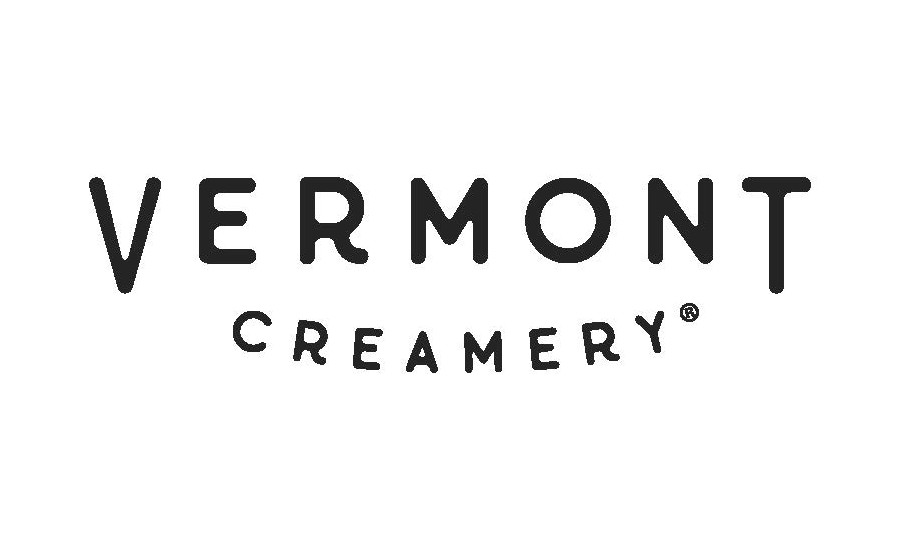
Host: Vermont Creamery
Project Title: Designing a Strategy to Carbon Neutral
Founded in 1984, Vermont Creamery (VC) is a nationally recognized and award-winning producer of cow and goat cheeses and butter. As a Certified B-Corp, they are devoted to promoting environmental sustainability and social responsibility. After steady growth for over three decades, VC was acquired by farmer-owned cooperative Land O’ Lakes in 2017. With the additional resources and support of Land O’ Lakes, they continue to diversify their product lines and grow market share. VC has over 100 employees and bases their operations in central Vermont.
VC is committed to achieving carbon neutrality within the next decade. In order to meet this goal, the SI-MBA practicum team will map out a Carbon Neutrality Plan. Actions involved in creating the plan include: identify metrics to measure VC’s greenhouse gas emissions, create systems to measure metrics that do not currently have a tracking mechanism (e.g. goat dairy emissions metrics that are adapted from cow dairy emissions), identify opportunities to reduce carbon emissions in product and process lifecycle, investigate offset options where applicable, and build a timeline with clear benchmarks. Students will also support VC’s preparation for their B-Corp 2024 recertification and investigate the viability of additional certifications (such as Climate Neutral). Successful project deliverables are a comprehensive carbon neutrality action plan with a defined timeline, cost, and resource analysis, analysis and recommendations for possible additional certifications, and input on B-Corp recertification processes as needed.
2021-2022

Host: BCG Green Ventures
BCG Green Ventures Internship – Venture Architect
BCG Green Ventures is a new team focused on building, scaling, and investing in businesses that enable a 1.5˚C world in partnership with leading corporations, climate tech ventures, investors, and institutions. While hosted by BCG Digital Ventures, Green Ventures is shaping up to be a One-BCG offer, bringing the best of BCGDV’s business building capabilities combined with climate, sustainability, and sector-specific expertise (BCG) as well as access to a network of external partnerships. BCG Green Ventures is committed to achieving transformational impact by supporting climate tech ventures in accelerating their businesses to get the world to net zero and drive economic value.
The practicum project will support the BCG Green Ventures team around defining and scoping ventures to develop the market opportunity, business models, marketing, pricing, and operational structures needed to commercialize and/or accelerate products and businesses. The student will focus on supporting Green Venture sprints with corporates or climate tech ventures as well as internal strategy including Business Development and IP creation.
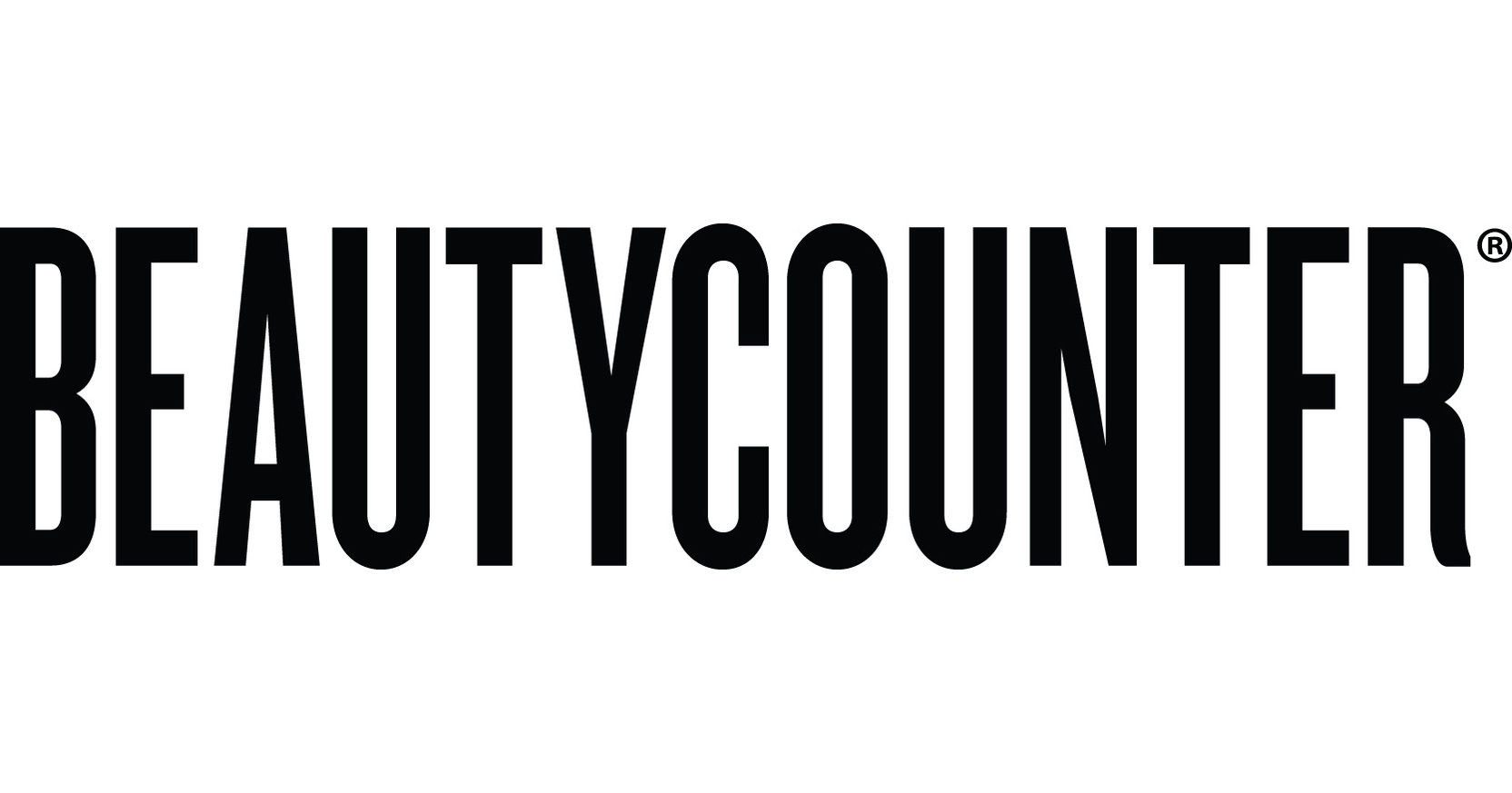
Host: Beautycounter
Project Title: Charting a Sustainable Path to Carbon Neutralit
Beautycounter is a direct-to-consumer and Certified B Corporation whose mission is to get safer products into the hands of everyone. They are focused on formulating, educating, and advocating for better beauty. Through rigorous testing, supply chain audits, and a growing “Never List” banning the use of over 1,800 ingredients, Beautycounter provides quality, sustainable, safe makeup, skin care and bath and body products. Holding themselves and their product formulation to an internationally high standard, Beautycounter advocates for the use of safer product ingredients and transparency to elevate the entire beauty industry.
In addition to their formulation and advocacy work, Beautycounter works diligently to accomplish aggressive sustainability goals. This practicum will help the Sustainability Team further strengthen their sustainability commitment and accelerate their climate progress by improving low carbon product design. The Beautycounter Sustainability Team is focused on solutions and reductions. They are in the process of reevaluating their carbon goals to be more aggressive and aligned with Science Based Targets.
Students will help strengthen Beautycounter's commitments to reducing our greenhouse gas emissions by helping us better understand our Scope 3 emissions and identifying reduction opportunities in our product lifecycle. The students will do so by designing and testing an approach to launching a carbon neutral beauty product that could be utilized by the brand in the future.

Host: BETA Technologies
Project Title: BETA Climate Pledge
BETA Technologies is an electric aviation and technology company committed to building a cost-effective transportation infrastructure with minimal impact on the environment. The company’s differentiating product, Alia, is a fully electric vertical take-off and landing aircraft (evTOL) with 200 cubic foot cargo capacity and re-charges in 50 mins.
The practicum will build momentum towards BETA’s B Corporation certification and commitment to the Climate Pledge, signed in the beginning of 2022. The SI-MBA student team will divide and conquer departments across the business, from finance and operations to supply chain, to scope needs for emission measurement and reduction. By implementing a climate management platform, our goal is to provide a foundation for embedded climate conscious operations on which BETA will continue to develop.

Host: Burton
Project Title: Supply Chain Allocation – Water Risk Management
Burton has set ambitious sustainability goals for 2025 to reach beyond their initial strategy to target new avenues of corporate sustainability. These goals include carbon reduction, eco-friendly materials, circularity initiatives, and fair compensation for factory workers. One key area of environmental stewardship that has not been formally addressed by Burton is water measurement and reduction within the supply chain. The textile industry broadly is one of the most water intensive industries on earth, and Burton must address this impact area in the coming years to keep the company aligned with science-based climate targets.
The goal of this practicum is to analyze the location of Burton’s current supply chain as it relates to water scarcity in regions of operation, develop a sourcing map, and provide recommendations for future sourcing operations on the basis of water scarcity over the course of the next 10-20 years. Students will research the impact of climate change on the accelerated drought and flooding across the world, as well as the communities displaced.
Students will investigate the following:
- Where the most secure sourcing regions lay for natural materials such as cotton, wool, and down
- How supply chains shift due to climate change and resource scarcity
- How Burton can sustainably address and get ahead of these concerns
- How Burton’s business actions affect the communities in which the company operates

Host: Casella
Project Title: Designing a Multi-Stakeholder Resource Management Circular Economy
Casella Waste Systems, Inc. is a publicly traded, regional solid waste, recycling, and resource management services company based in Rutland, Vermont with operations throughout the Northeast and customers in 40 states. Recognizing the limits of traditional waste management services, Casella has become an industry leader in the evolution of resource renewal and sustainability. As part of their 2050 Vision, Casella believes the definition of waste is shifting, and there are substantial growth opportunities from cycling otherwise wasted resources back into supply chains.
This practicum will focus on Casella’s strategic challenge to activate and serve as a central stakeholder at the heart of a circular economy model. The practicum team will work with Casella and their partners to design a circular economy model that can be adapted to opportunities enterprise wide. The students will identify key stakeholders and supply chain opportunities, construct financial and economic assessments of their model, and make recommendations to the Casella team for the design and implementation of Casella’s circular economy strategy.

Host: Clorox
Project Title: Disruptive Business Models for Sustainably Growing Clorox Brands
Our team will be providing two in-depth recommendations for tractable business models that can improve the environmental, social, and economic value of The Clorox Company’s business portfolio. We plan to analyze Clorox’s existing businesses and find neglected areas with room for improvement. Our recommendations will be aimed at initiating and improving triple bottom line best practices. These recommendations will focus on two brands. The first brand is in the early stages of “greening,” while the second brand is considered “green,” but working to improve upon existing sustainable practices. Our project will culminate in a report and presentation provided to the Head of Open Innovation, Navin Kunde.

Host: GlobalFoundries
Project Title: Vermont Clean Energy Incubator Business Model
GlobalFoundries is a semiconductor manufacturing foundry providing a unique combination of design, development, and chip fabrication services. Their Vermont facility (FAB 9), located in Essex Junction, takes great pride in serving their local community as Vermont’s largest private employer. GlobalFoundries is looking to improve their corporate sustainability by optimizing their energy portfolio while reducing greenhouse gas (GHG) emissions, moving GlobalFoundries towards its goal of operating a carbon-free energy portfolio.
FAB 9 is designing a “Clean Energy Incubator” with several inter-related projects under consideration. Each project will require an initial capital investment that (while incurring operation and maintenance costs) will ultimately provide significant energy cost and GHG emissions reductions across FAB 9’s operations. The SI-MBA team will evaluate the proposed energy projects and create a comprehensive model to perform scenario analyses and determine relevant cash and energy flows under various conditions. This will include forecasting FAB 9’s energy consumption, by estimating fixed and variable energy use, and accounting for future production goals. The SI-MBA team will provide analysis for future scale-ups of selected technologies that will position FAB 9 as an industrial leader in supporting Vermont’s Global Warming Solutions Act (GWSA) goals in the most economical and beneficial way.
Host: Kymera
Project Title: Next Steps in the Sustainability Strategy Journey
Kymera is a material sciences company looking to become leaders in the industry by integrating sustainability throughout their entire value chain. Taking a wholistic and global perspective, the practicum team will be challenged to analyze Kymera’s entire value chain and develop strategies and business models to maximize the positive societal impact of the entire business system, including the identification of innovative, sustainability strategies for our customers. The work may also require building collaboration with a larger ecosystem of partners to enable the necessary brand awareness and legitimacy to implement the innovations sought. The team will development a road map for Kymera that includes long-term goals, business aspirations rooted in sustainability, and an articulation of how the company will aim to create a net positive impact in the world looking out a decade or more. The practicum team aims to create a general framework for the company to evaluate, assess and communicate current sustainability efforts, and identify future opportunities within business lines.
Own Venture: The Mediterranean Café
The Mediterranean Café business plan is designed to reflect and incorporate a holistic approach when dealing with the most pressing environmental, social, and economic constraints that we are facing today in the food service industry. I believe that sustainable business development is the only way for a sustainable future, which compels me to craft a business model that will not only take in consideration its financial viability and feasibility, the social welfare of its employees, but also its waste and carbon footprint impacts that it may have on our community.
To that end, I believe that my ideal outcome for my Mediterranean Café is to launch a purpose driven, sustainable food business that strongly advocates how to responsibly source local foods, establish attainable water/energy/food conservation goals, and apply comprehensive business management techniques to implement a sustainable food hospitality operation in an environmentally conscious, socially, and economically beneficial manner.

Host: Microsoft
Project Title: Sustainability Messaging for Consumer Electric Products
Microsoft reinforces its position as a leading technology company by pushing customers and organizations to expect more from their technology (software and hardware). In 2020 Microsoft announced several ambitious public commitments around carbon, water, waste, and ecosystems. These commitments lay the foundation for creating tangible impact in our communities and across the globe. Specifically, these commitments can be summarized by the following:
1. Reducing carbon emissions and becoming carbon negative by 2030
2. Achieving zero waste by 2030
3. Becoming a water positive company by 2030, and finally,
4. Building a Planetary Computer to catalog and analyze global environmental data to answer tough ecological questions.
Currently, UVM's Sustainable Innovation MBA students are collaborating with the Microsoft Devices team; specifically, their Ecodesign team (which covers products like Surface laptops, keyboards, mice, and Xbox consoles) and Sustainability Program Management Office. The team will be developing a series of comprehensive documents that explain how product sustainability should be defined internally to communicate sustainable value to the end consumer honestly, effectively, and appropriately. The students are tasked and encouraged to present creative and unique recommendations to Microsoft, sharing strategies and messaging that will promote sustainable literacy, internal and external engagement, and long-term value creation. This multifaceted practicum hosted by Microsoft will require students to pull from their previous experiences and newfound skills from SI-MBA, including data analysis, stakeholder engagement, and communicating shared value.

Host: Morningstar
Project Title: Measuring Success in ESG Investing
Morningstar has been an independent voice for investors since 1984, and the Morningstar manager research team has developed a multitude of tools to empower investors in decision-making. These include the Morningstar Rating (star rating), the Sustainability Rating (globe rating), the Equity Style Box, the Analyst Rating, and the ESG Commitment Level. For a ratings framework to be useful, there needs to be a clear measure of success—but in the ESG investing space, that’s a truly thorny debate.
To address the need for a consistent ESG valuation framework, this practicum will develop a system to evaluate success in listed equity funds, fixed-income funds, and multi-asset funds against ESG-specific measures of performance. Leveraging Morningstar's proprietary data and the most commonly used tools in the industry, SI-MBA students will delineate this framework across a broad sustainability performance review matrix for funds covering multiple asset classes. Then, the student team will source relevant data for visualization in hopes of formulating a working model for ESG valuation.
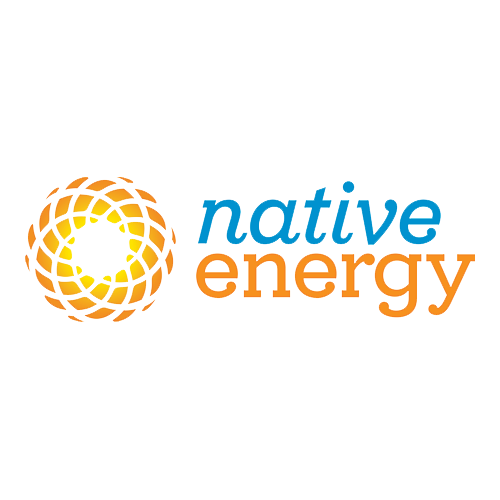
Host: Native
Project Title: Building a Collaborative Offset Investment Program
Native, A Public Benefit Corporation originates greenhouse gas reduction projects around the world, working closely with companies and brands to reduce their overall emissions. The market for individual consumers looking to offset their own emissions has grown significantly over the last year, and Native is looking to meet this interest by expanding its crowdfunding direct-to-consumer (or DTC) program. In this project, we will work with Native to evaluate the growth potential of the DTC channel with increased levels of investment and direct engagements with individuals and partner organizations.

Host: One Point Five
Project Title: Democratizing Access to Sustainability Experts to Accelerate Climate Solutions
OnePointFive (OPF) is a remote advisory firm working to democratize access to multidisciplinary sustainability experts with a focus on commercializing climate technologies, deploying climate finance, and providing bespoke sustainability services. OPF sources, vets, and deploys sustainability experts to fit the specific needs of customers within three areas - sustainability services, climate technology, and finance. OPF’s vision is to accelerate solutions that enable businesses and the environment to coexist in harmony, ensuring global warming stays below OnePointFive degrees Celsius (1.5oC).
This practicum will focus on the B2B professional marketplace for high-talent, remote sustainability experts (supply-side) and create an engaged community through learning and networking opportunities. The SIMBA team will begin by identifying areas of opportunity within the expert community by interviewing current members. Then, the team will work with OPF’s leadership team to refine the talent identification, interview process, and onboarding process to support the growing expert network. OnePointFive's expert network (supply-side) is the foundation upon which they are able to drive long term sustainable change for their clients. The practicum team will be responsible for bolstering this network, creating efficiencies and best practices, and developing a strategy for scalability.

Host: SAS
Project Title: Deriving Economic Value from SAS's Data for Good
SAS is a trusted analytics company for organizations seeking immediate value from their data. SAS Data for Good provides clients with the quantifiable information needed to address global environmental and humanitarian challenges. As society continues to expect greater social responsibility and measurable ESG efforts from business, Data for Good uses agile processes to utilize a company’s data and analytics to maximize social impact. The result is a highly productive and engaging program that iterates quickly, leverages core competencies, and generates internal and external brand excitement.
The purpose of this project is to position Data for Good as a sustainability-focused SAS consultancy solution for industries and organizations to derive value and create impact. The goal is to expand Data for Good’s capabilities from a volunteer corporate philanthropy tool to an ESG goals-driven solution that guides organizations seeking to implement strategic, measurable sustainable change.
Host: Suncommon
Project Title: Power by the People – Aggregating Household Clean Electric Supply & Demand to Rejuvenate our Electric Grid
For the clean energy transformation to occur, rapid innovation will be needed to transition away from outdated energy models. The grid as we know it is a 150-year-old business model that simply is in the way of what is needed now. One approach is a "virtual power plant." SunCommon has built solar energy projects for 10,000 customers. Imagine they were woven into a consortium network of distributed clean energy that equates to the output of one of those legacy power plants. With onsite energy storage in more and more homes, our people could tap their batteries to accommodate the surge in power demand just when it's needed, taking the place of fossil fuel burning “peaker plants” that are dirtier and more expensive than our standard portfolio of electricity sources. Less pollution and save money, sounds good right?

Host: Sustainable Production Alliance
Project Title: Assessing what type of environmental content moves the needle with viewers
The Sustainable Production Alliance (SPA) is a consortium of the world’s leading film, television, and streaming companies dedicated to advancing sustainability initiatives through advocacy, education, and innovation while reducing the entertainment industry’s overall environmental impact. SPA members include Amazon Studios, Amblin Partners, Disney, Fox, NBCUniversal, Netflix, Participant Media, Sony Pictures, ViacomCBS, Discovery, and WarnerMedia. Throughout this practicum project, students will be working directly with Sustainability and Corporate Responsibility leaders at Paramount Pictures, HBO/HBO Max, and Disney.
Since its inception, SPA has focused on combating the industry’s environmental impact through physical production and overall business operations. While that work is ongoing, they would like to expand their focus to how content can help battle the climate crisis. This practicum project explores how climate-friendly actions taken by characters, as well as sustainable message placements, in all areas of content inspire audiences to change their behavior to a more sustainable lifestyle. Students will investigate the idea of ‘social modeling’ to explore if lifestyle changes made by characters that viewers associate themselves with carry evidence of impacting viewers’ behavior. Pulling from disciplines such as psychology, behavioral science, and behavioral economics, students will explore Oscar Wilde’s idea that “Life imitates Art far more than Art imitates Life” to use the entertainment industry’s product to inspire positive, sustainable behavior change while also driving viewership numbers as a reflection of society’s increased interest in sustainability.

Host: TS Designs
Project Title: An Alternative to Commodity Cotton: Negotiating directly with the farmer on a long-term price
TS Designs is a 45-year-old ethical apparel manufacturing business based in North Carolina. In 2007, TS Designs began sourcing cotton directly from a local farmer, which opened their eyes to the numerous difficulties cotton farmers face. Many farmers are under intense pressure to adopt sustainable agricultural practices, which requires long-term planning and significant investment; however, farmers typically have no control on the unpredictable market price they are paid for their cotton. This uncertainty is intensified by the rising price of agricultural inputs, urban sprawl encroaching on farmland, and climate change.
In 2020, TS Designs launched the 10,000 Pounds of Cotton Project, which aims to give the cotton farmer a seat at the table in terms of determining fair value compensation for their product. By agreeing on a reasonable price for cotton before the seed goes into the ground, TS Designs empowers farmers to make necessary investments in regenerative agriculture and gain the financial security they deserve.
This practicum will focus on scaling the 10,000 Pounds of Cotton Project by creating a roadmap for other apparel brands to develop similar agreements with the farmers who produce their cotton. The team will work directly with President and CEO of TS Designs, Eric Henry, as well as leaders in the domestic textile industry to focus on how to rethink supply chains and combat inequities in the cotton and apparel markets.
2020-2021
Host: Avrio, LLC
Project Title: Creating a Sustainable Footwear Brand One Step at a Time
AVRIO is a digital footwear brand built upon Sustainability Education through the pillars of Collaboration, Eco-Innovation, and Transparency. AVRIO designs and manufactures shoes, with plans to expand into garments, and other eco-related products by incorporating bio- and recycled materials that are engineered for clean construction and deconstruction. By maximizing the ability to re-use all components of what we produce, AVRIO closes the product life-cycle loop by being accountable for all life-cycle stages: from the first stitch to the last step. AVRIO was founded on the belief that the waste of one product is an opportunity for another. With this belief, AVRIO looks to inspire others to take part in improving our future by demanding better products and processes that promote a cleaner environment and stronger community.
The focus for the AVRIO practicum will include Brand Marketing and Development around the themes in which the brand was built. UVM’s Sustainable Innovation MBA students will be tasked with educating consumers through Brand Marketing tactics about sustainability in fashion to Make Tomorrow Beautiful.

Own Venture: BanQu
Project Title: Empowering Women-Owned SMEs at the BoP Through Direct Funding/Credit
With today’s trends in consumerism responsible sourcing is set to become a necessary safeguard for all producers. BanQu is a supply-chain software company that utilizes non-crypto blockchain technology as a track and trace device to service their partners. The BanQu platform enables firms to behave transparently through an immutable ledger. Additionally, the status and location of orders placed are secure and accessible.
There are roughly 1.7 billion adults without bank accounts in the world. Bank accounts open up a route to loans that help those impoverished. Many members of the supply-chain lack access to basic economic services despite playing a significant role in many large scale operations, for many multinational organizations, because they lack a financial history. BanQu is a for-profit for-purpose company that seeks to be a wedge to stop the poverty cycle. It’s track and trace capabilities that benefit large firms simultaneously help small and medium enterprises, such as a barley farmer in Uganda, establish a monetary history. Founder Ashish Gadnis was inspired to create BanQu after witnessing financial exclusion while working with USAID in the Democratic Republic of the Congo. The mama farmer he was helping to open up a bank account was denied because she couldn’t establish a credit history. However, the banker turned to Ashish and said “I’ll bank you,” because Ashish could produce confirmation (like a phone bill). Recognizing the critical role many assumed nonbankable people play in the supply chain Ashish set out to link them with the economic legitimacy of firms downstream, all through SMS texts. In doing so, BanQu became a lens into first-mile, last-mile economies that ensures honesty and accountability for larger producers and inclusion for previously disregarded members of the supply chain.
The purpose of this project is to assist BanQu in positioning itself to multilateral development banks as an ally in their mission to benefit the underserved and as an alternative to predatory microfinance institutions. In line with multiple of the United Nations’ Sustainable Development Goals, specifically gender equality, BanQu can serve as a ledger to prove one’s economic legitimacy.
Fellowship: Ben & Jerry’s
Project Title: Integrating Offsets for Historic Greenhouse Gas Emissions and Reparations
This practicum project explores integrating the concepts of carbon offsets for Ben & Jerry’s historic greenhouse gas emissions and environmental justice through the lens of reparations for slavery in the United States. Ben & Jerry’s currently has an established climate program in place to address their forward-looking greenhouse gas impact that focuses on their own supply chain, but they also want to take responsibility for their historic emissions.
Students will measure Ben & Jerry’s historic greenhouse gas emissions from founding in 1978 through 2014 and explore how to offset this environmental impact. Unlike traditional carbon offset programs, the team will seek out investment projects that center on social and environmental justice benefits, with a primary focus on Black American communities. Students will research opportunities for carbon offsetting that overlap with strategic considerations such as communities disproportionately impacted by climate change as well as the availability of localized support via third party organizations and incentive programs.
The goal is to develop a proposal which highlights areas of opportunity for Ben & Jerry’s which can be used to scale-up and establish a long-term program within communities to systematically address historic climate impacts and commit to a greener future steeped in justice.

Host: Burton
Project Title: Environmental and Social Performance Benchmarking
At Burton Snowboards, sustainability is an integral part of the company's purpose and defining principles - to fight for the future of our sport, people, and planet. Out of this sense of responsibility, Burton strives to respect and fight for the natural world around us, build equitable and healthy communities, and break down barriers to our sport and the outdoors. As Burton wraps up reporting on its 2020 Sustainability Goals, the company is interested in exploring new ways to engage with customers and highlight progress, while differentiating the brand in a crowded, competitive market.
SI-MBA students will analyze Burton’s competitive standing as it relates to sustainability goals and claims. More specifically, they will research competitors in the outdoor industry, conduct competitive landscape mapping for hardgoods and softgoods, and develop an internal competitor benchmarking tool to be used by various departments that will measure performance. Additionally, they will provide recommendations to attract new customers and increase brand loyalty, through sustainable competitive differentiation. Through industry and competitor analysis, students will use data, research, and tool development to provide recommendations for building brand affinity and to support internal decision-making.
Host: Citi Ventures Studio
Project Title: Sustainability and Banking
Citi Ventures is the strategic investment and innovation arm of Citigroup, including Citi Venture Studio whose focus is developing digital products and solutions to address key macro trends around the world. As sustainability is increasingly important across all levels of corporate decision making, there is an opportunity for banking institutions to take a leadership role in this arena given their scale, reach, and financial resources.
The SI-MBA team will work with the Studio strategy and partnerships team as well as Citibank's sustainability professionals to develop Citi's next iteration of innovative sustainability related solutions.
As a leading global bank, Citigroup has thousands of corporate and institutional clients each with different views of sustainability. The scale of Citigroup’s client base and Studio’s product development capabilities gives Citi Venture Studio an opportunity to re-imagine how financial services address sustainability related issues.
This Practicum Project will focus on the following:
- Identifying how large corporate and institutional clients are thinking about sustainability
- Understanding what unmet sustainability-related needs exist across this client segment
- Developing a framework and product development strategy for Citi to address these unmet sustainability-related needs
- Creating a product/service strategy that combines digital product features with financial services to develop sustainability-related solutions
Host: Dalberg
Project Title: Defining Africa’s Carbon Offset Market
Dalberg is a global group of changemakers working towards a more inclusive and sustainable world where all people, everywhere, can reach their fullest potential. Dalberg partners with and serves communities, governments, and companies providing an innovative mix of services – advisory, investment, research, analytics, media, and design – to create impact at scale. Dalberg provides high-level strategic, policy and investment advice to the leadership of key institutions, corporations and governments, working collaboratively to address pressing global problems and generate positive social impact.
This practicum will focus on defining Africa’s carbon offset market potential and opportunities to expand the supply of, and demand for, African carbon credits. The team will begin by conducting a gap analysis of sub-Saharan Africa, mapping carbon markets through research and sizing the potential supply and demand pipeline for carbon offsets. The team will also identify market entry barriers for new carbon credit suppliers. In order to understand how Dalberg can support these initiatives, the team will investigate how carbon markets can sustain green livelihoods while also reducing carbon emissions in African markets.
Host: Darn Tough Vermont
Project Title – Circular Product Development from Post-Industrial & Post-Consumer Textile Waste
Darn Tough Vermont (DTV) is a premium sock manufacturer based in Northfield, VT. While Darn Tough socks are sold globally, DTV has been a pillar of its local community since its inception. This project focuses on the exploration and concept development of a product made from post-industrial and post-consumer textile waste. Additionally, it incorporates the creation of a socially-driven operational plan that increases prosperity for DTV’s extended community.
DTV currently downcycles its textile waste into acoustic fill, seat cushions, and other products because their fiber mix is not conducive to separation with today’s manufacturing and recycling technologies. To improve the company’s circularity, UVM’s Sustainable Innovation MBA practicum team is investigating a series of alternative product lines created from the textile waste that would be sold exclusively through DTV’s online storefront. The final business plan will highlight the opportunity to address a large, adjacent market with a circular product that preserves margin on raw materials, eliminates downcycling, does not result in incremental greenhouse gas emissions, and fulfills the company’s social sustainability goals.
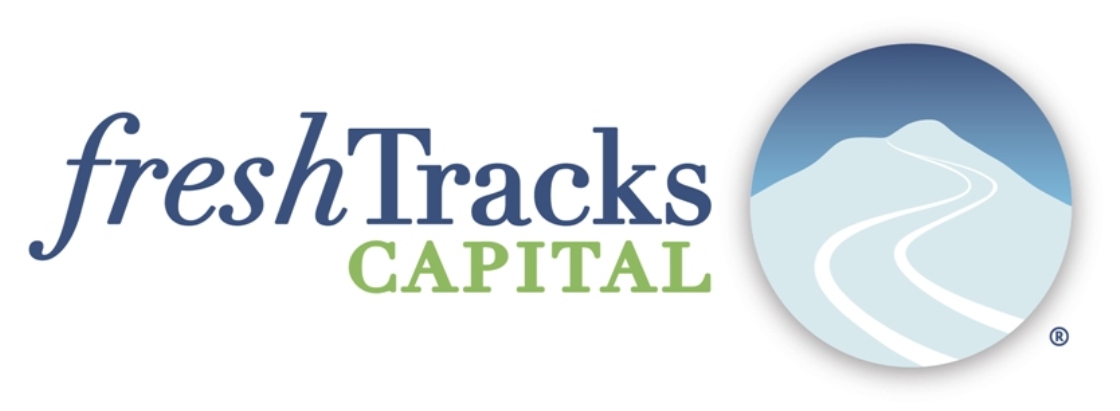
Host: Fresh Tracks Capital & SunCommon, Inc.
Project Title: Reimagining and Reinventing Vermont Benefit Corporation Statutes and Annual Reports
Benefit corporations are designed to take the traditional adage of shareholder primacy and turn it on its head, focusing instead on a global economy that uses business to pursue positive impacts for society and the environment in addition to profit. Vermont was one of the first states to adopt the benefit corporation structure, but the governing statutes have not been updated in over a decade. These regulations should be updated to reflect the changing needs of society and the current state of ESG and impact investing. By working in conjunction with FreshTracks Capital and SunCommon, our practicum team will focus on revitalizing the current Vermont Public Benefit Corporation Statutes and improving the reporting practices in order to allow for better assessments of and investments in benefit corporations. These changes will aid businesses in their quest to redefine business success through the development of a more inclusive and sustainable economy.
Our team will particularly focus on the annual impact reports that benefit corporations are expected to file, with an eye towards compliance, scope of reporting, framework, and methodology. Limited structure and guidance on how these reports should be produced and distributed has resulted in uneven utilization and value for the business, its consumers, investors, and beneficiaries. We will examine Benefit Corporation statutes in other states, along with other prosocial business structures like the B Labs’ certification, in order to develop suggestions for succinct, meaningful reporting standards and best practices. Using the standards we develop, we will assist SunCommon in preparing a report that provides greater value to the company’s stakeholders.
This practicum project is hosted by FreshTracks Capital and SunCommon. FreshTracks is an early-stage Venture Fund focused on building exceptional businesses in Vermont and supporting adjacent organizations. SunCommon, one of FreshTracks’ portfolio companies, is a public benefit corporation and leading solar energy provider whose mission is to make renewable energy simple and affordable. Because of FreshTracks’ influence on business innovation across the state and reliance on these benefit reports to aid their due diligence process, they are in an excellent position to improve the statutes that govern Vermont benefit corporations, as well as the reports we rely on to assess their progress.
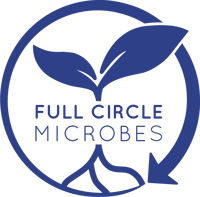
Host: Full Circle Microbes, Inc.
Project Title: Environmental Policy Impact Analysis & Monetization
Full Circle Microbes’ mission is to transform organic waste that harms our planet into sustainable fertilizer that helps it. Global agriculture consumes $376B in fertilizer while treating leftover biomass as waste and generating 24% of global GHG emissions. Full Circle’s microbial inoculants solve these problems through fast and easy on farm recycling of plant biomass, as well as the direct application of microbes to help plants at various stages of their lifecycle. They are focused on the burgeoning hemp and cannabis sector as their beachhead market, seeing an opportunity to incorporate environmentalism with practical business benefits into the foundation of a rapidly growing new segment of agriculture.
This practicum project focuses on research and analysis of potential monetization opportunities for Full Circle Microbes and its clients related to environmental impact of its products. Areas of opportunity include alignment with current and pending state, local, and federal policies that provide opportunities for farmers including grants related to land use, soil management, and carbon sequestration. Other monetization opportunities include private sector engagements including partnerships related to impact analysis, farmer networks, and private carbon markets.

Host: Glavel
Project Title – Defining the Value Proposition for a Unique Green Building Material
GLAVEL produces a foam glass aggregate intended to take over the construction industry as a recycled, carbon neutral substitute for traditional building insulation. It is safer for the consumer and the environment and will strengthen a circular economy for recycled glass. This technology is well proven in Europe but GLAVEL intends to bring the technology into the North American markets. Domestic production of foam glass gravel is slated to begin at a Vermont facility in June 2021, and will be fully powered by renewable energy, making GLAVEL foam glass one of the lowest embodied carbon products available. Foam glass gravel outperforms traditional installation methods in terms of embodied carbon, cost, supply chain simplicity, and overall environmental friendliness.
The students working on this project will be applying principles of sustainable business strategy to take a “bird’s eye view” of GLAVEL’s trajectory. They will focus their mutual interest in Diversity, Equity, and Inclusion practices and green design innovation to expand what “value” can mean as GLAVEL strengthens its sustainable value proposition. This practicum will focus on design thinking in the green building industry and creating go-to market strategies for GLAVEL’s expanding product line. They will be exploring how Equity philosophies and frameworks can make GLAVEL a national leader in the construction industry through research on potential cross-sector collaboration, Social Determinants of Health and the effects of green buildings on individuals and communities.

Host: Morningstar
Project Title: ESG Commitment Level
Morningstar has been an independent voice for investors since 1984. Their manager research team has developed a multitude of tools to give investors access to the space and empower them in making investment decisions. These include the Morningstar (star) rating, the Sustainability (globe) rating, the Style Box, the Analyst rating, and now the ESG Commitment Level. The ESG Commitment Level is designed to provide investors a forward-looking understanding of the role ESG plays in a fund or at an asset manager.
This practicum will aid in revising, expanding, and improving upon the ESG Commitment Level methodology as it is rolled out across the fund universe. The team will design and lead training for those analysts that are newer to the ESG investing space, seek opportunities to measure the efficacy of these assessments, and provide recommendations to bring greater transparency to the sustainable fund landscape for investors everywhere.

Host: Morris Recruiting & Consulting
Project Title: Tri-Circle Engagement Methodology: Embedding Positive Employee Engagement within Social Responsible Businesses
Morris Recruiting & Consulting is a female-owned and operated B-Corporation that is a member of 1% for the Planet and Vermont Businesses for Social Responsibility. The firm specializes in career development for sustainable business leaders, and has recently created its newest venture, Tri-Circle Engagement Methodology (TCEM).
TCEM is an interactive framework, offered as a 6-month program for responsible businesses, which will empower enterprises to reduce workforce turnover with increased employee engagement and empowerment. By leveraging internal career development, fostering growth, and harnessing intrapreneurial strengths in the workplace, companies benefit from higher levels of engagement and productivity from employees. Organizations with strong employee commitment commonly achieve a stronger competitive advantage in the market, attain greater sustainable growth across human capital, increase profitability by decreasing HR overhead, and promote and enhance innovation. The SI-MBA team will get hands-on experience in a start-up environment, developing a broad range of skills in their toolkit as they work on the new venture launch and execution. The project will include customer and marketing research, financial modeling of pricing and budgets, and creating measurement techniques to track the progress and success of the program. They will also be offered the unique opportunity to curate the 6 TCEM core programs.

Host: Rainforest Alliance
Project Title: Defining New ESG Frameworks for Responsible Tea and Palm Oil Commodity Sourcing
The Rainforest Alliance (RA) is an international non-profit organization working in more than 60 countries at the intersection of business, agriculture, and forests. RA was a pioneer in establishing the value chain transformation approach to sustainable forestry and agriculture and has helped companies around the world in establishing credible sustainable sourcing policies and practical management frameworks to ultimately create lasting impact on the ground.
This practicum will focus on further refining the Rainforest Alliance Corporate Advisory approach with brands. The team will focus on several areas of interest including emerging ESG regulatory frameworks globally, supply chain technologies and datasets relevant to responsible sourcing implementation, as well as more detailed analysis on commodity sourcing scenarios relevant to advisory partners. The students will be encouraged to think creatively and introduce novel methodologies that incorporate the latest insights in responsible sourcing strategy and ESG analysis.
Host: Resonance
Project Title: The Resonance University - Strategy and Start-Up
Resonance is a Vermont-based global consulting firm that deploys innovation, partnerships, and market-led solutions to catalyze meaningful development impact and create private sector opportunity. As Resonance grows, knowledge management — the practice of organizing case studies, methodologies, trainings, and past work — is increasingly challenging. The innovation team at Resonance is starting to look at ways to both distill and make available internal knowledge, as well as train staff for a more standardized understanding of business, development, and specific topics across all departments.
The SI-MBA student team will review and refine Resonance’s content into relevant themes for a Resonance University. They will undergo a gap analysis of what Resonance currently has and what they would need to develop for a minimum viable product. This internal upgrade would increase interdepartmental communications and access to information which will increase efficiency and productivity of work.
As Resonance expands their internal access to knowledge, they also want to examine the feasibility of polishing these resources and making them available externally. Therefore, the SI-MBA team will examine these internal upgrades to create a long-term strategy for a Resonance University, with potential development as an external resource. A gap analysis within the competitive landscape will determine what would be needed to develop a minimum viable product. Once this is done, the SI-MBA team will look to create an overall strategy for Resonance University, incorporating short and long-term goals, as well as internal and external tools.

Host: Trane Technologies
Project Title: Strategic Electrification Assessment
Trane Technologies is a global climate innovator that specializes in sustainable climate solutions for homes, buildings and refrigerated transport. The firm manages a robust strategic brand portfolio, which includes Trane and Thermo King. Trane Technologies has pledged a series of comprehensive 2030 commitments in alignment with their core strategy, which boldly challenge what is possible for a sustainable world.
The Sustainable Innovation MBA students will analyze the current electrification of heating processes and modern energy efficiency techniques to create insightful predictions pertaining to the relevant market forces impacting the company’s future triple-bottom-line. Participants will leverage their “outside-in” perspective to identify cutting-edge opportunities with the potential to alleviate the strain on the electrical grid. The final report will deliver actionable strategic positioning recommendations designed to provide leadership with prospective opportunities for ingenuity and sustainable design.
2019-2020

Host: Burton
Project Title: PassAlong: Product as a Service
As the only snowboard company designated as a B Corporation, Burton Snowboards maintains its placement in the snow sports industry as a product innovator and global market leader. Burton recently created the Pass Along program, which aims to keep its products out of landfills and enjoyed for extended periods across its global consumer base. Pass Along is a dynamic circular economy that will enable customers to sell back their equipment and soft goods for resale and refurbishment by Burton, thus extending its lifetime across multiple users. Not only does this strategy help to protect the environment, it also endeavors to make snowboarding more accessible to customers in untapped markets from a variety of backgrounds and demographics.
UVM’s Sustainable Innovation MBA students are tasked with assisting the implementation of this re-commerce program by doing financial analysis and modeling, investigating other innovative business models that could expand this program, and delivering a comprehensive planning report. The students are encouraged to use their creativity and share additional recommendations to Burton in the area of environmental stewardship, customer engagement, and profitability. This dynamic practicum hosted by Burton will require students to utilize their spectrum of knowledge and skills learned in SI-MBA, including engaging corporate social responsibility strategies, marketing, finance, and data analysis.
Host: Own Venture - Dipidi.com
Project Title – Creating sustainability changemakers and intrapreneurs as a competitive edge for a staffing agency
Staffing employees are seen as employees filling a temporary gap, without the recognition of their abilities to do more. With dipidi.com, I aim to recreate a broader staffing firm in which every employee will be trained constantly as a changemaker for sustainability as a competitive edge. The strategy will be focused on the Dutch market.

Fellowship: Environmental Defense Fund
Project Title: Environmental Defense Fund Climate Corp Fellowship
The Environmental Defense Fund (“EDF”) is one of the world’s largest environmental organizations, with over 2.5 million members and over 700 employees around the world. Founded in 1967, EDF is known for its work on issues including global warming, oceans and human health. As noted by the Economist, EDF is “America’s most economically literate green campaigners.
The EDF Climate Corp Fellowship was created in 2008 and was meant to bring together top graduate student talent, coupled with EDF resources and expertise in a variety of subject matters and industries to help organizations meet sustainability and energy goals. Since its inception, over 1,000 graduate students have worked on projects with over 450 organizations around the world, resulting in over $1.6 billion in energy saving projects identified.
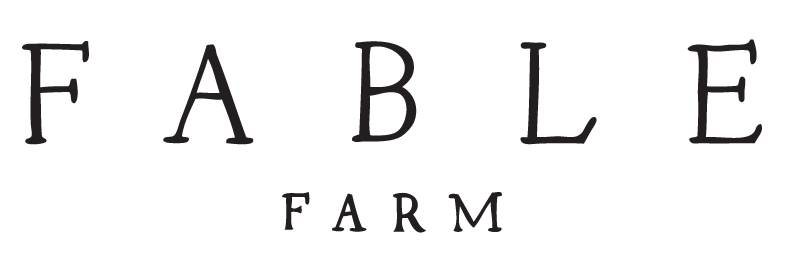
Host: Fable Farm
Project Title: PassAlong: Product as a Service
This practicum will focus on helping empower and solidify a farm business-cultural organism into a thriving, robust expression of a rural agrarian enterprise. Over the last 11 years, Fable Farm has come a long way since it started as a vegetable farm turning into a fully integrated perennial farm, winery and gathering space that supplies living wines and vinegars to niche urban markets across the country. The Farm is at a crossroads of growth and looks to take the business to the next level.
Specifically, the Farm is interested in identifying and examining new potential revenue streams, distribution methods, human capital challenges, internal reorganization, and capital/infrastructure development projects that would increase capacity and efficiency. Areas of focus for research include hospitality and other onsite revenue streams, product development, farm expansion projects, and strategic equipment needs. Honing in on areas of biggest needs (such as business structure and operation, marketing, etc.) will be the initial challenge that will help pivot the direction of this practicum.
Host: Griffith Food
Project Title: Co-creating a Fortified, Affordable Food to Improve the Nutritional Status of Adolescent Girls
Griffith Foods is a family-owned global developer and manufacturer of customized food ingredients whose purpose is to “blend care and creativity to nourish the world”. The company manufactures a variety of products, ranging from seasonings and coatings to marinades and sauces blended to specifications for the food industry. Founded in Chicago in 1919, the company has expanded around the world with a presence in over 30 countries and sales of more than $1 billion worldwide. A worldwide network of Griffith facilities exists to support customers locally and help them grow globally.
The Griffith team is truly immersed in bringing Shared Value to the world with their current products and ongoing projects in the Base of the Pyramid markets. They are committed to bringing food and nutrition security for all segments of society. Their unique strategic partnerships with NGOs, large food corporations and government entities bring innovative products to at-risk populations while creating value from food excess.
This practicum project focuses on evaluating potential partnerships to co-create a fortified, affordable food product to improve the long-term nutritional status of at-risk populations in Mexico and Guatemala, while building Griffith’s long-term competencies to create partnerships and build shared value for future projects. The team will work with Griffith Foods including the R&D Department, sourcing and product development experts and the marketing team, to create a viable business model and cohesive strategy to transform an existing challenge into a social and economic opportunity.
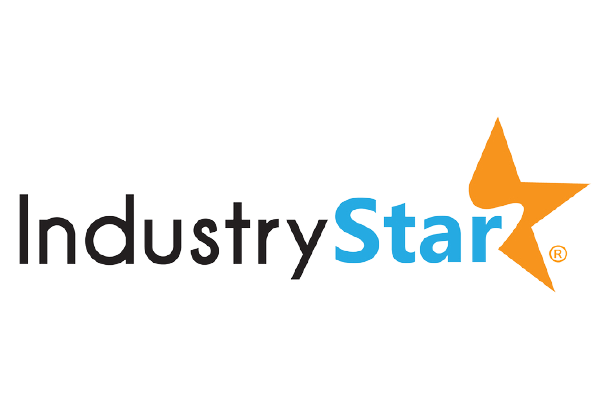
Host: Industry Star
Project Title – Building a Closed Loop EV/AV Supply Chain for Tomorrow’s Mobility Technology
Based in Ann Arbor, MI, IndustryStar is an on-demand supply chain services and software technology company passionate about partnering with companies to bring innovative and disruptive products to market that will have a positive impact on the world. By pairing their proprietary cloud-based software with a world class supply chain management team, IndustryStar is able to take customers from idea to product with less time, cost, and risk.
On the back of five straight years of 20% YoY revenue growth, IndustryStar is looking to expand its core business offerings to include sustainable product sourcing and services for its customers. This means embedding sustainability in daily operations and looking beyond cost and quality in the decision-making process.
In order to achieve our shared sustainability goals, our team will work to map a closed loop direct-to-consumer electric/autonomous vehicle supply chain. This will entail working directly with both suppliers and customers to help optimize operations and adopt a longer-term approach to ROI.

Host: Mascoma Bank
Project Title: Using Non-traditional Banking as a Force for Good: Defining a Sustainable Growth Plan for Burlington
After financing commercial projects in Burlington for a decade (including the South End City Market and the Sailing Center), Mascoma is expanding its retail presence to the area with three non-traditional branches in 2019/2020. Mascoma seeks to promote an innovative and more sustainable approach to Banking that identifies and addresses issues traditional financial institutions fail to recognize. The focus of the project is to conduct a Diversity, Equity and Inclusion assessment of the Old North End and greater Burlington area, with an eye on identifying opportunities to impact local communities, to eventually define a Burlington Growth Strategy that benefits all stakeholders, while growing deposit balances.

Host: Native Energy
Project Title: Regenerating Soil Carbon in the International Cotton Supply Chain
Burlington-based NativeEnergy originates custom greenhouse gas emission reduction projects for companies and brands. NativeEnergy’s combined project development and greenhouse gas strategy expertise helps companies and brands realize their sustainability vision, strengthen their supply chains and enhance their business, all through the lens of reducing industry emissions. To achieve these goals, Native Energy originates high impact projects including increasing efficiency of supply chains, sequestering carbon in soils, and to renewable energy projects in global communities. Their focus is on community-scale projects with high social and environmental impact.
This Practicum Project will strive to find a scalable and feasible opportunity to reduce carbon emissions in the cotton supply chain, potentially in India. By mapping out the dynamics of a region’s cotton supply chain, including existing sustainable approaches (such as the regenerative organic certification or no-till farming practices), we aim to identify key players in the cotton supply chain, to target the opportunity most ripe for carbon emission reductions. The project will develop a plan to reduce greenhouse gas emissions within the selected cotton supply shed that satisfies stakeholder expectations, farm needs, and brand requirements. Reduction opportunities could be anywhere in the supply chain, so the scope is to assess any and all processes involved from the farm level to the initial manufacturing level. The optimal carbon reduction strategy will leverage other social and/or environmental value, such as through increasing farmer income resilience, reducing fertilizer application, or optimizing transportation routes.
Host: Resonance
Project Title: Evaluating the Viability of Developing Sustainability Consulting Services for Mid-Tier Companies
Resonance is a mission-driven consulting firm headquartered in Burlington, VT that has fueled significant growth by working at the intersection of global development and corporate sustainability. Together with their clients and stakeholders, they kickstart bold new partnerships, innovations, and business models that better meet the needs of consumers and communities worldwide. All of their work is guided by their mission: Igniting Opportunity. Advancing Global Good. As sustainability and environmental, social and governance (ESG) become increasingly mainstream business topics, their practical applications and implications are moving down market from Fortune 500 to the massive middle market – where there are over 180,000 companies with annual revenues between $10 and $100 million.
Currently, there is little information surrounding the largest and most common sustainability challenges middle-market firms face. The SI-MBA team will assist Resonance with a landscape assessment and analysis of the drivers of corporate sustainability initiatives in the middle market and answer the question “Are there industrial, geographical, business model, ownership structure, or other elements that correlate with willingness to pay for sustainability initiatives for middle market companies?”
Host: Seventh Generation
Project Title: Developing Global Sustainable Innovation Strategy
Seventh Generation’s mission is to transform the world into a healthy, sustainable and equitable place for the next seven generations. For the past 30 years, we’ve been a company with strong beliefs about people and planet. We believe that a company’s values are as important as the products it makes and have recently launched into 30 new global markets in order to expand our mission and aspirations through our sustainable home care products.
The goal of this project is to develop a 3-year global sustainable innovation strategy for priority markets based on key environmental, social and human health issues that consider Seventh Generation’s strengths in product development, advocacy, and consumer communication.
The design of the research will focus on addressing the most pressing threats to human and environmental health while exploring the current state of local policies and politics, consumer behavior and culture, and sustainable product development challenges. The ideal strategic roadmap will harmonize product development and advocacy strategies. Each key region will receive a tailored global plan to guide the strategic product work aligning with our 2025/2030 sustainability goals.

Host: Trane Technologies
Project Title: Bringing the 2030 Sustainability Commitments to Life
Trane Technologies is a pure-play climate technologies company formed after splitting Trane and Thermo King from Ingersoll Rand. The company’s 2030 Commitments include reducing customers’ CO2 emissions by one billion tons and creating a takeback economy for their products.
The SIMBA practicum team will help Trane Technologies decide what to conserve and what processes must be tweaked if the company is to achieve its goals. Closing the loop will involve mapping out suppliers and other stakeholders, seeking the inputs of designers and engineers, and finding new ways to take back products at the end of life.
![]()
Host: Ursa Major
Project Title: Sustainable Growth Opportunities for Ursa Major
Ursa Major was founded in 2010 by Emily Doyle and Oliver Sweatman after leaving New York City behind for rural Vermont in search of a more balanced life that would also bring them closer to their families and the great outdoors. The two were in pursuit of a more natural and active lifestyle and wanted to create products that focused on clean, plant-powered, and effective ingredients. Thus Ursa Major was born, a skincare company striving for natural products pioneered by their very first launch; the Stellar Shave Cream. From there, the product line grew to house lotions, hair care, serums, masks and more. The values of the company are rooted in non gendered offerings and simplified skincare routines that don’t compromise your health or the environment. The Ursa Major brand also emphasizes simplicity and speed rather than multi-step routines. They even highlight travel kits that provide small size products meant for those who live the on-the-go lifestyle.
Ursa Major is clearly centralized around all things health and environment and has been trying over the last few years to reflect those values internally. Our team has the opportunity to build on these values and create a program that aligns Ursa Major’s mission and values with employee’s values and actions. This program will facilitate sustainable practices amongst employees. We will focus on educating each member of the Ursa Major family on their impact on the climate and how they can thread sustainability and environmentalism into their everyday office life as well as the Ursa Major brand.

Host: Venture.Co
Project Title: Designing a Sustainability Metric for an Impact Fund
VENTURE.co is a boutique investment bank that leverages its proprietary software to compliantly and efficiently manage subscriptions to private securities (growth stage companies, funds, real estate, etc.).
In 2020, VENTURE.co plans to launch a select number of proprietary products – funds – to meet investor and issuer demand. One of those products will be an Impact Fund and is being scoped to contain a diversified mix of asset classes and investment vehicles. The fund will need to assess investments based on a sustainability metric, standardized so as to avoid the obvious greenwashing apparent in proprietary methodology.
This practicum project will put together a fund creation plan, research the available methodologies, and make a recommendation as to which, and why, one is recommended. This practicum will also design a template for annual investor impact reporting, based on that methodology. This practicum will also work collaboratively with the fund managers to design and market the fund to the appropriate target clientele, which are Registered Investment Advisors (RIAs) and Family Offices.

Own Venture: Vermont Wilderness Medicine
Project Title: Advancing Medical Education in the Backcountry: An Entrepreneurial Adventure
Vermont Wilderness Medicine LLC is an entrepreneurial business venture designed to offer continuing medical education credits for medical professionals. By expanding outside the walls of the hospital, we plan to utilize nature as our classroom. Courses will be offered throughout Vermont ranging from the Green Mountains to the shores of beautiful Lake Champlain. The course objectives will emphasize instruction of medical knowledge with the integration of communication and interpersonal skills to increase accessibility and comfort treating illnesses in the backcountry. Courses will encompass a holistic approach to learning, extending beyond Powerpoint slides with an active learning and scenario based curriculum.
The goal of this entrepreneurial practicum will be to create a sustainable enterprise, blending my passion for medicine, academia, and the outdoors through business. The practicum will focus on the construction of the business from the ground up. Initial framework development will include building a business model, creating an operating budget, obtaining proper accreditation status, and constructing a diverse academic portfolio to craft a fun yet challenging curriculum.

Host: VSECU
Project Title: VSECU Environmental Sustainability Report
VSECU is a member-owned cooperative and not for profit credit union for everybody who lives or works in Vermont, offering a full range of affordable financial products and services to its member-owners. VSECU is committed to improving the lives of Vermonters by empowering the possibilities for greater financial, environmental, and social prosperity.
This practicum is focused on furthering VSECU’s efforts toward strengthening the sustainability of its business operations, becoming a meaningful extension of its environmental mission statement.
The team will develop a methodology to measure and report on VSECU’s environmental impact resulting from operating activities and associated travel (Carbon emissions from direct and upstream indirect sources, water usage, paper consumption, and solid waste generation). This practicum is also focused on developing recommended benchmarks and initial potential strategies to reduce VSECU’s environmental impact, consistent with their mission and commitments to financial, social, and environmental well-being for their members, employees, and communities.
2018-2019
Host: REI
Project Title – Evaluating Sustainability Impact in REI’s Adventure Travel Operations
REI is the largest consumer cooperative in the United States, specializing in performance outdoor goods and adventure travel. Sustainability is an integral part of REI: The Co-op donates millions of dollars every year to support conservation efforts locally, nationally, and globally, and it strives for positive environmental and social impact through initiatives like its product sustainability standards and its Force of Nature campaign.
The practicum will focus on REI’s adventure travel program. As one of the largest adventure travel companies, REI is interested in aligning its practices with its core values. The SI-MBA team will evaluate the sustainability of REI’s current operations, benchmark them against competitors, then recommend improvements. Evaluations will consider both global and localized environmental and economic impacts.
Ultimately, the project will consist of extensive market research, stakeholder analysis, and a thorough evaluation of REI’s value chain. In addition, the team will strive to create an evaluative tool capable of measuring REI’s sustainability in its multifaceted adventure travel operations.

Host: Jaipur Rugs
Project Title: Building a Consumer Brand Around Sustainability
Rug weaving is a 2,500-year-old art form in India, with 2.5 million artisans currently engaged in the craft. To sustain the age-old art form, celebrate the craftsmanship, and dignify the weaving profession Jaipur Rugs is currently working on a social innovation project – Manchaha (Artisan Originals).
The roots of the project emerged when a re-creation of one of the weaver’s designs won the prestigious German Design Award. With that experience in hand, Jaipur Rugs started developing and branding the weavers as unique designers who can weave their own designs. Now Jaipur Rugs is trying to launch the initiative as a new line of one-of-a-kind luxurious artisan rugs. Currently, around 100 weavers are making their own designs. One of them has been nominated as a finalist for Carpet Design Award; another has won the German Design Award for 2018; and 3 of them won Elle Décor India International design awards.
With this potential, Jaipur Rugs faces a challenge: it has been into b2b business for the last 38 years and is trying to decide if Artisan Original can be the catalyst to catapult Jaipur Rugs in the consumer branded business. If so, how does it keep the Founder’s Mentality intact? Is the social message enough to build a consumer brand? What will that brand be, Jaipur Rugs or the Artisan Original? How will the artisan know what consumers will want to buy? Should Jaipur Rugs even venture into the branded consumer market? If so, how will it define a pricing strategy, and how will it decide on the weavers’ remuneration? How will Jaipur rugs manage impacts on its core business?
We plan to answer these questions by developing a sustainable brand strategy for Jaipur Rugs Company. Our field work will likely include travel to Jaipur Rugs Headquarters in Jaipur, Rajasthan, India, where we will conduct on-the-ground market research in the villages of Rajasthan and interview the artisans and founders.
Host: Seventh Generation
Project Title: Finding a Solution in Retail to Single Use Plastic Bottle Waste Host Organization
For the past 70 years, our society has adopted a dependence on single-use, disposable plastic products. In 2015 alone, the world produced over 320 million tons of plastic. While some of those materials can be recycled, only a limited portion of all plastic containers that can be recycled actually are. Much of the estimated 8 billion tons of plastic that have been produced remain unaccounted for and much of that waste is likely polluting the world’s waterways.
The purpose of this practicum is to research the industry challenge identified above and develop a clear, cohesive sales story for our Brick & Mortar customers to partner with Seventh Generation on developing a systemic solution to waste stemming from single-use plastic bottles. This practicum will focus on identifying a scalable bulk refill solution with our Brick & Mortar customers as key stakeholders.
The project will focus on laundry detergent and build the recommendation so that it can be proliferated across the rest of SVG’s product lines.
Host: ASHOKA
Project Title: Fostering Awareness and Understanding of Hybrid Business Models
The Ashoka practicum focuses on three interconnected activities: conducting research about the Ashoka fellow network, including surveying, phone interviews, and in-person interviews; designing a strategic marketing plan and asset mock-ups showcasing five to ten successful and transformational fellow stories, based on the data collected during the research activities; and identifying and onboarding at least three new Ashoka partners, specifically business schools, with the goal of fostering awareness and understanding of the hybrid business systems and the worldview of Ashoka leaders and the Ashoka Changemaker Economy.
Host: Green Man Acres
Project Title – Building Regenerative Agriculture From the Ground Up
Green Man Acres is a diversified farm being developed in Monkton, VT using regenerative agricultural methods. The primary focus areas are developing the financial projections, shifting a property boundary, building a sawmill/ cabin, getting permits and the septic design completed. Investment is being secured which allows for the purchase of necessary equipment and covering operating expenses for the next 2 years. Additional financing for purchasing the property and covering startup costs will be sought through working with the Small Business Development Center to develop the elements of loan applications for the purchase of the property which is currently being leased.

Host: Environmental Law Institute
Project Title: The 3D Printing Industry: Examining Voluntary Market Forces to Reduce Negative Externalities
The Environmental Law Institute (ELI) is a non-partisan think tank that “makes law work for people, places, and the planet” by identifying innovative, just, and practical solutions for policy makers, businesses and communities.
This project will investigate the future socioeconomic landscape that the expansion of 3D-printing will present for people, organizations, and businesses throughout the world, with a specific focus on the United States. 3D-printing technologies present a wealth of exciting possibilities, yet unanswered questions remain regarding the potential adverse environmental impacts. We aim to close these gaps in understanding the environmental risks of the 3D-printing industry, its larger social and economic impact, and the possible trajectories of AM technologies with regards to health, energy, and materials. We will collaborate with a trade association or makerspace to develop strategies to enhance sustainable AM business practices through codes of conduct or other voluntary frameworks which can be adopted by manufacturers, supply chains, and hobbyists. Through data-intensive and analytically-sound research, our goal is to provide recommendations and guidelines that will reduce the footprint of the technology to achieve more sustainable outcomes.

Host: Burton
Project Title: Global Warranty and Repair Program
Every second, the equivalent of one garbage truck of textiles is landfilled or incinerated. Most of these products could have had prolonged lives through reuse or recycling. While Burton continues to develop products built to last, we want to ensure they live their fullest life. This is core to our environmental commitments. Standing behind our products, we recently announced Lifetime Warranty for all softgoods, and also have strong warranty policies for hardgoods. Products that do not stand up to our strong quality standards are reviewed and sometimes repaired by our Warranty and Repairs team in each global sales region. We have a goal of doubling the warranty repair rate over the span of just three years, from 20% in 2017 to 40% in 2020. That means that 40% of warranty claims will be repaired rather than replaced, which keeps more products out of the landfill for longer. This is an ambitious goal that will require creative problem-solving. Burton is seeking a team of students to take on the challenge of reimagining the global warranty and repair program. This is an opportunity to dive deep into a business unit that is impacted by and has the potential to impact product design and manufacturing across a range of product categories, including apparel, outerwear, packs, bags, luggage, tents, snowboards, boots, bindings, helmets, goggle, and more. Working alongside the Sustainability and Warranty and Repair teams at headquarters, students will be immersed in the process from customer service claim through product receipt, evaluation, and repair. Project activities and deliverables will include: mapping and performance evaluation of current program, inclusive of its global scope; identification of best practices for product repair and recycling, within and beyond our industry; proposed redesign and business plan for the global warranty and repair program, encompassing policies, processes, and physical and human resources.
Host: Resonance
Project Title: Blockchain Framework for Corporate Sustainability and Global Development
Resonance is a frontier market solutions firm providing consulting, advisory and project support to a diverse range of corporate, donor agency and philanthropic clients around the world with focus on delivering market-based and technological solutions to solve the world’s toughest challenges. Blockchain, a Distributed Ledger Technology, is a decentralized database that introduces transparency and efficacy to electronic record keeping. Blockchain offers unique and exciting potential for solving complex issues across a wide range of applications for both public and private sectors. As awareness of Blockchain has grown, Resonance’s clients are increasingly asking whether it is appropriate for their needs. While Blockchain and other disturbed ledger technologies hold tremendous promise, it remains poorly understood in the marketplace. The purpose of this practicum is to build upon Resonance’s initial work of developing a proprietary analytical tool for assisting clients to make better decisions about when and how to use Blockchain, and other Distributed Ledger Technologies, in areas relevant to their work. In particular, the goal is to develop a framework applicable to corporate sustainability, supply chains, global development, environmental conservation, climate change and agriculture in frontier and developing market contexts.
Host: Ben & Jerry's
Project Title: Sustainable Dairy 3.0
The purpose of this practicum is to determine the economic costs and savings for dairy farmers who implement sustainable agricultural practices. The team will create an economic model that analyzes cost data and qualitative ecological impacts over a multiple year time horizon for variables such as soil practices, pesticides and input usage, and animal care, across small, medium, and large farms. This model will compare the on-farm economics of conventional, regenerative, non-GMO, and organic farming, as well as the cost of compliance with Ben & Jerry’s farm standards. Initially, the model will focus on dairy farmers in Vermont, with the possibility of expanding the scope to include national and international data. The project will identify a business case for sustainable agricultural and the appropriate incentives to encourage eco-friendly practices. Ultimately this work will help inform Ben & Jerry’s ongoing supply chain investments and help guide data driven decision making.
Host: Interface
Project Title – Driving Employee Engagement in Personal Sustainability Behavior
Interface began its sustainable business transformation almost 25 years ago. Visionary founder and CEO, Ray Anderson, led the company to a very bold vision: zero negative impact by 2020, and ultimately a regenerative or restorative influence thereafter. In recent years, coming close to zero, the company launched an ambitious new mission, Climate Take Back, an initiative focused on building a plan for the company to become carbon negative while influencing other companies to do the same, and on influencing employees to take their own individual actions.
Interface has been working over the last year to increase internal awareness of the new mission and is beginning to focus on designing a program that shifts them from understanding the company mission to taking individual actions. Equal parts inspiration and tactics, the program needs to shift employees’ beliefs about the impact that their individual actions can have on climate change. Through the use of the Handprinter model and the UN’s Good Life Goals, the team will design a program that focuses on optimism and individuals' sustainability goals through company supported actions. The program will help employees understand and measure their own impact and will be implemented across the global employee population.
Host: Vanu, Inc.
Project Title: Using Mobile Network Technology to Spur Economic Development in Rwanda
Vanu Inc. is a cellular network technology company that creates connectivity solutions for locations that have historically been a technological and cost prohibitive challenge to cover. Headquartered in Lexington MA, with offices in India and Rwanda, the company was born out of groundbreaking research in software radio technology at MIT. It now aims to serve the 1.2 billion people that do not have connectivity and the half of the world’s population that does not have access to the internet.
The purpose of the practicum is to develop a “business in a box” that would profitably and sustainably provide coverage solutions to remote populations in Rwanda with a suite of services for the wants and needs of identified regions. This effort will be done in partnership with a local entrepreneur, and customized to the unique entrepreneurial landscape of Rwanda. Because traditional mobile network operators cannot expand coverage solutions to remote markets due to the economics of conventional cellular solutions and business models, SI-MBA students will be working to address this gap in coverage using Vanu’s unique combination of technology and business model innovations.
Host: FIS Group
Project Title: Establishing a Firm-Wide ESG Investment Policy
FIS Group is an investment management firm that provides customized “manager of managers” investment solutions for institutional investors.
The foundation of the practicum with the FIS Group is to assist the firm in establishing a firm-wide ESG (Environmental, Social, and Governance) Investment Policy Statement (IPS) that reflects the core values of its investment mission from both an investment and analytics perspective. This policy will cover a general firm overview as well as all areas of the business (Piedmont Investment Advisors, FIS Emerging Manager of Managers, and Aapryl). ESG is an emerging asset class that promotes sustainable and ethical business practices. The goal is to improve the firm’s risk management framework by integrating an ESG policy, which ultimately encourages the firm to identify risks related to ESG, while also identifying positive returns. All five SI-MBA students will work collaboratively on the IPS, which will be a living, dynamic document throughout the duration of the practicum. In addition, SI-MBA students will assist the investment advisors in developing ESG portfolios to be used as part of an overall ESG investment strategy.
Host: Just, Inc.
Project Title: Emerging Markets Strategy Development
JUST, Inc. sources food discoveries from the breadth of the plant kingdom, comprising over 350,000 plant species around the world. From its headquarters in San Francisco, JUST uses such discoveries to produce plant-based mayonaise, dressings, cookie dough, eggs, and cultured meat. JUST aspires to create a food system that is truly “JUST for all” by ensuring that every community has access to affordable, delicious, nutritious, and locally produced food. This approach aims to address hunger and malnutrition, but without compromising the environment. In 2017, it launched an affordable and nutrient-fortified porridge in Liberia with plans to expand into other African markets. This year, JUST launched its plant-based egg product (JUST Egg) in Asian markets. Students will support the JUST Emerging Markets team in the development and implementation of go-to-market strategies for such products.

Host: VSECU
Project Title: Bottom of the Pyramid Investment Fund Development
This practicum is focused on identifying an environmental, social, governance (ESG) scoring methodology for registered securities, and developing a value proposition that has the potential of becoming a meaningful articulation of VSECU’s vision and brand. The team will develop screening strategies for registered securities that include mutual funds, exchange traded funds (ETF), stocks, and bonds. The practicum has two desired outcomes. The first, to identify a series of potential methods of screening or scoring securities. The second, to present a recommendation for new model portfolios that meet the ESG parameters and the financial needs of VSECU’s members.
2017-2018

Host: BYFUSION
Project Title: Igniting Change by Uniting Forces
ByFusion is an innovative manufacturing company dedicated to disrupting the recycling industry by reshaping the future of plastics. The ByFusion practicum will focus on identifying new business opportunities by developing a corporate partnership strategy to maximize our collective efforts to heal the planet. ByFusion sees an opportunity to synergize with environmentally conscious corporations to allow them to have a positive, measurable impact on their communities; creating a win-win situation that solidifies both organizations as essential cogs in a new circular economy.
Host: Care Enterprises
Project Title: Investing in For-Benefit Enterprises across South and Southeast Asia
CARE Enterprises is at the forefront of creating innovative investment models in the fight against poverty. It is a start-up, for-profit subsidiary of CARE, a leading humanitarian aid organization. This practicum project will focus on the development of a pipeline of investment opportunities and potential investors in Indonesia and/or Bangladesh. Investment opportunities identified will be based on commercial viability, potential to reach significant market size, economic inclusion, shared value, and a female-focused gender lens. The practicum team will also develop impact metrics and targets for the fund.

Host: Caterpillar
Project Title – Toward Green Infrastructure: Sustainable Reuse of Dredge Material
The purpose of the Caterpillar practicum project is to research and develop new, creative ideas for repurposing dredged material for productive uses. A core area of research will be into methods of using dredged material to build coastal and riverine infrastructure to protect against the adverse impacts of extreme weather events. This may include nature-based approaches to building/re-building marshes, wetlands, barrier islands and/or living shorelines. The team will research and evaluate alternatives for financing the beneficial use of dredged material for such purposes and, in so doing, identify and address both opportunities and constraints due to economic, regulatory and legislative factors, map stakeholders and develop strategies for addressing their concerns. The team will then pioneer a creative structure for financing flood mitigation projects. Ultimately, working toward designing projects that will help protect population centers and man-made infrastructure from storm and flood damage.

Host: Essilor
Project Title: See Change: Bringing Sustainable Vision Care to the Base of Pyramid Populations
The world's leading ophthalmic optics company, Essilor designs, manufactures and markets a wide range of lenses to improve and protect eyesight, globally. 4.6 billion people in the world have visual defects, and 2.5 billion still do not have the vision correction they need, 90% live in developing countries. In line with Essilor’s core mission of improving lives by improving sight and its firm belief that good vision should be a development priority to reach the UN’s Sustainable Development Goals, the company launched a dedicated division to tackle this issue with a focus on advocacy, philanthropy and inclusive business models.
Through the inclusive business arm - 2.5 New Vision Generation (2.5 NVG), the Group is creating access to affordable eye care, generating employment and alleviating poverty, by building a taskforce of skilled primary vision care providers and micro-entrepreneurs in underserved areas. One of the many countries positively affected by Essilor Group is Ivory Coast. As part of the practicum project, the team will assess the efficacy of Essilor’s programs in creating access to vision care for BoP population in Ivory Coast in addition measuring the socio-economic impact of such activities on local communities. This would help shape the strategy for future efforts in the region.
Host: FreshTracks Capital
Project Title – FreshTracks Business Bank Merchant Banking Practicum
The goal of the Merchant Bank Practicum is to explore creating a non deposit-taking entity that can promote the health and inclusiveness of the Vermont economy and community by providing opportunity for small Vermont businesses to access debt financing that would otherwise be unavailable to them so that they can grow here. This practicum is intended to explore the demand for debt financing that is outside the typical lending activities of deposit-taking institutions and whether and how providing such financing can be done in a way that is viable for growing businesses and profitable for investors. This practicum will analyze the opportunity to establish a merchant banking entity to address these needs, and will include researching the gaps in current funding options through private capital, banking and thrift institutions, and governmental programs; assessing market demand, business needs and borrowing capacity, structural options for the entity; exploring funding options/sources for the merchant bank (including potential partnerships with traditional institutions and community economic development organizations); and possible lending structures that could be deployed.
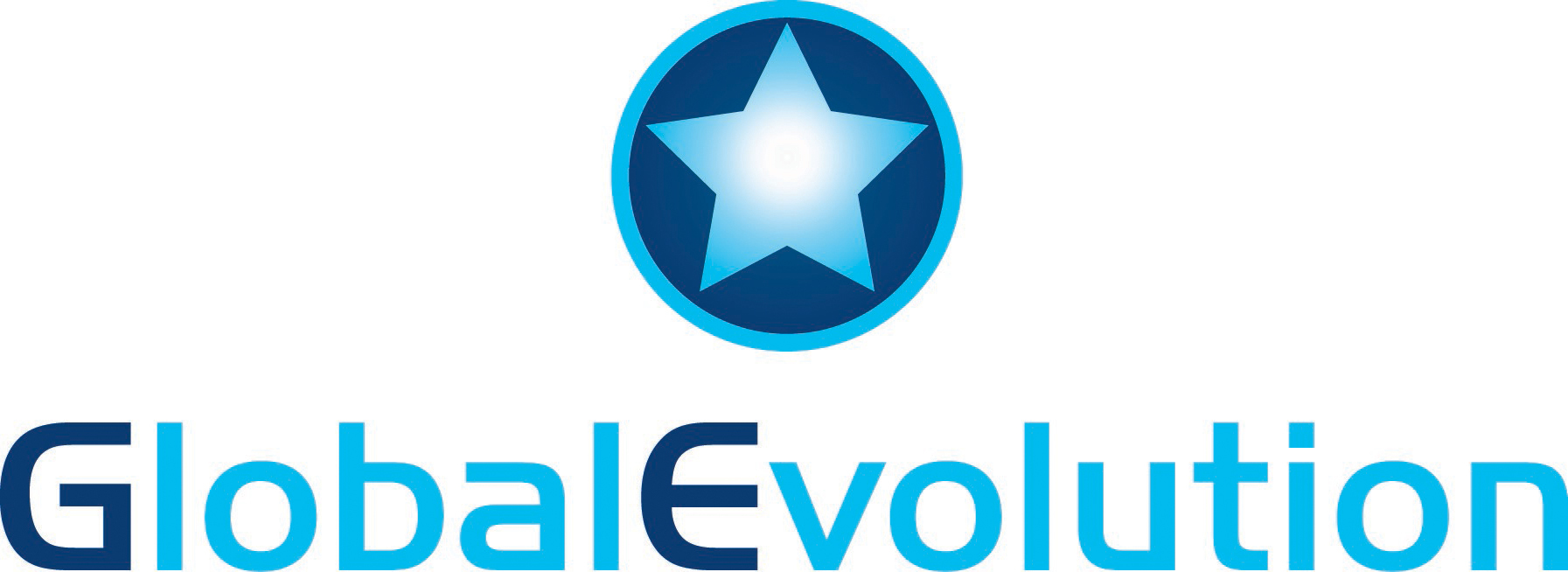
Host: Global Evolution
Project Title – Building the North American Market for ESG Investing in Frontier Markets
Global Evolution is a Denmark-based boutique investment management firm that specializes in emerging and frontier market sovereign debt. By fully integrating environmental, social and governance (ESG) into the investment process, Global Evolution has established a track record of both meaningful engagement with countries and optimized strategies to investors. The purpose of this practicum project is to work with a variety of stakeholders to craft strategies for telling the story of ESG dynamics to clients and prospects in compelling ways. These strategies will then be synthesized into educational and training materials to guide the development of best practices for the marketing and communication of Global Evolution’s products in North America.
Host: Griffith Foods
Project Title – Scoping a “Shared Value” Start-Up
Griffith Foods is a product development partner specializing in food ingredients, serving global and regional food companies worldwide. As a family-owned company, Griffith Foods is committed to helping their customers succeed through true, collaborative innovation – “Creating Better Together”. Griffith Foods is driven by its Purpose – “We Blend Care and Creativity to Nourish the World” and is dedicated to integrating sustainability into its core strategy and operations.
This practicum project is seeking to expand the scope and scale of the successful Griffith Sustainably Sourced [GSS] program, combined with similar ‘Shared Value’ and Base of the Pyramid initiatives that the company has been working on and that are at various stages of development. The team is looking to work with Griffith Foods on creating an independent company that will be set up and wholly owned by the company. The objectives of this new company will be to: 1. Serve the Griffith Foods Purpose through greater impact to small holder farmers, communities and society; and 2. Enable execution of Griffith Foods' Purpose-driven strategy. Students will work with a team from Griffith Foods, develop a comprehensive business plan for a ‘shared value start up’ that will operate as a separate company within the Griffith Foods group of companies. Goals of the project will include: identify new external customers; create new products and categories; enter new market segments; increase retention and penetration of existing customers/products; obtain, build and leverage new differentiated capabilities in shared value, partnerships/ecosystems and health and nutrition.
Host: Keurig Green Mountain & Casella Waste Systems
Project Title: Compostable Packaging: Defining a Responsible Product Launch
Keurig Green Mountain continues to be a leader in specialty coffee & innovative single serve brewing for 35 years and counting. As a company founded on social responsibility, Keurig is committed to using the power of business to brew a better world through their work to build resilient supply chains, sustainable products, and thriving communities. Casella Waste Systems provides a vast array of waste and recycling services to customers in over 40 states. Recycling, collection, organics, energy, landfills, professional services and sustainability form the foundation for providing service to Casella’s customers. These two companies have come together to develop a partnership to innovate creative solutions to the sustainability challenges of single serve coffee.
This year, two students are working alongside Keurig Green Mountain & Casella Waste Systems in order to examine the “what” and “how” for a responsible product launch of compostable coffee pods. There is a delicate balance between product and packaging innovation, and infrastructure development to accommodate re-use. Compostable packaging is an example of innovation that does not yet enjoy robust infrastructure to process and breakdown material for next use. This practicum will focus on examining the current compostable packaging landscape as it exists today, as well as the technology and infrastructure being developed in the near future. Additionally, students will research the consumer market and draft consumer and community acceptance proposals in order to give recommendations for the product position in the United States.
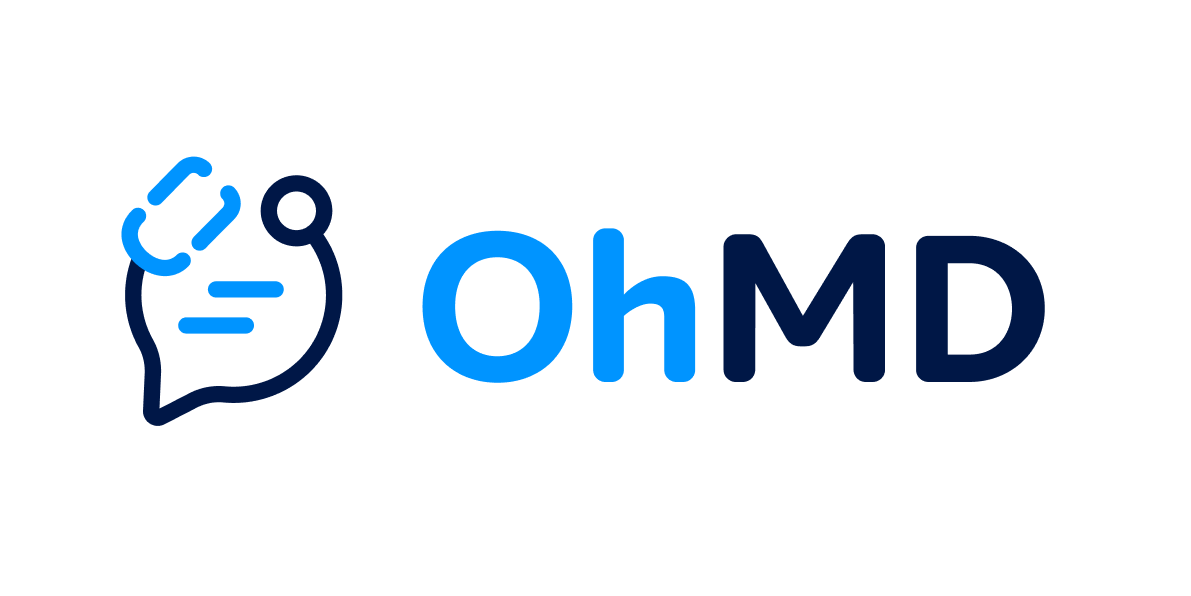
Host: OHMD
Project Title: Developing Business Models to Improve Healthcare Access in Underserved Communities
OhMD’s freemium model is unique in the healthcare information technology space. To date, OhMD’s primary focus has been on user growth, because they believe that the clinical dialogues generated on OhMD have the most potential to improve outcomes at scale. This practicum will focus on helping us to develop revenue opportunities for OhMD’s platform which will inform our product roadmap for the next 12 to 18 months. More specifically, OhMD is looking to develop new features/functions that will not only generate revenue in the enterprise and physician practice space, but that will also deliver value to the Federally Qualified Health Centers, community organizations, and other non-profit entities that utilize OhMD to improve care for underserved populations. OhMD wants to develop a business strategy that will provide the company with opportunities to generate revenue while continuing to advance their social mission of healthcare access for all. In addition to a set of recommendations for monetizing the OhMD platform, the practicum team will also develop at least one case study to describe the positive impact of OhMD in an underserved community.

Host: Propagate Ventures
Project Title: Strategies to Scale Permaculture and Agroforestry
Propagate Ventures is a Sustainable Innovation MBA alumni founded start-up whose mission is to scale agroforestry into a cornerstone of agriculture, and to push agroforestry forward as an asset class. Currently, agriculture does not work for 100% of humanity and many farmers struggle with drought, soil erosion, and low income diversity. This practicum project will focus on exploring several sustainable innovation opportunities for Propagate Ventures which includes a qualitative analysis of pre-purchase agreements between brands and farmers, and the use of government incentives for natural resource conservation to help lower installation costs. Additionally, the practicum team will examine the cost modeling of tropical crops and the application of Propagate Ventures's business model in “Base of the Pyramid” markets.
Host: Rhino Foods
Project Title – Strategic Initiatives for Driving Inclusion in Business
The Rhino Foods practicum team will support the continued growth of Rhino’s inclusive, innovative workplace and culture. To further evaluate and develop practices that align with the company’s Purpose, Rhino is considering the creation of their first ever Impact Report. Using B Lab Impact Assessment data, the team will work across departments (marketing, supply chain, operations, sales and marketing and HR) to highlight social and environmental sustainability, explore avenues for new value creation, and drive internal strategy. The team will benchmark other impact reports, develop processes for evaluating activities and impact, and compose a draft copy. Most importantly, the team will use a participatory approach during this process to gather stories from Rhino staff, key stakeholders and other B Corp certified businesses and make strategic recommendations to the Rhino leadership team. The team will also work to determine how this report will support and highlight Rhino’s B Corp certification
Host: Seventh Generation
Project Title – Reusable Feminine Hygiene Products
The purpose of the Seventh Generation practicum is to reduce the environmental impact of feminine hygiene products in our landfills by developing a reusable option(s) catered to a female, college-aged demographic. At Seventh Generation, we have a rapidly growing feminine hygiene business that has separated itself from conventional, legacy brands because we source our materials, manufacture the products, test them, and disclose their ingredients differently. The end of life of our products, however, is no better than the conventional players as they contain human waste, and therefore cannot be recycled or biodegrade, and result in living in a landfill.
Host: Zac Nuse
Project Title – Seeking affordable multifamily rental & housing solutions in the Vermont market
I am a Vermonter, I grew up here, and I want to be part of creating a community where people want to stay. A part of that conversation includes working together to build opportunities that solve the biggest challenges, lays the foundation for a strong thriving community and be sure we are covering everyone’s need for safe and affordable housing. My purpose for engaging in this practicum is to better understand how for-profit private firms can work together with others to achieve affordable, socially responsible, and environmentally sustainable multi-family rental and housing solutions.
Vermont suffers from a lack of affordable housing options and this is especially true for families with children. Low vacancy rates and high demand has thus far been insufficient to spur enough private for profit multifamily rental development to meet this need. Meeting this need is important because it has a wide range of impacts on complex social, environmental and economic issues. For example being able to find affordable housing may impact the strength of families, a person’s ability to be hired by employers, a community’s ability to attract a strong work force, and a company’s ability to retain skilled workers. And these impacts gain in complexity as it extends into other areas of the community’s defined sense of place. The approach of this practicum is to engage with a wide range of diverse stakeholders to improve my understanding of the challenge from their perspective and to think critically about relevant trade-offs which can inform an innovative pathway to both what is attractively possible now and what could be possible in the future.
2015-2016
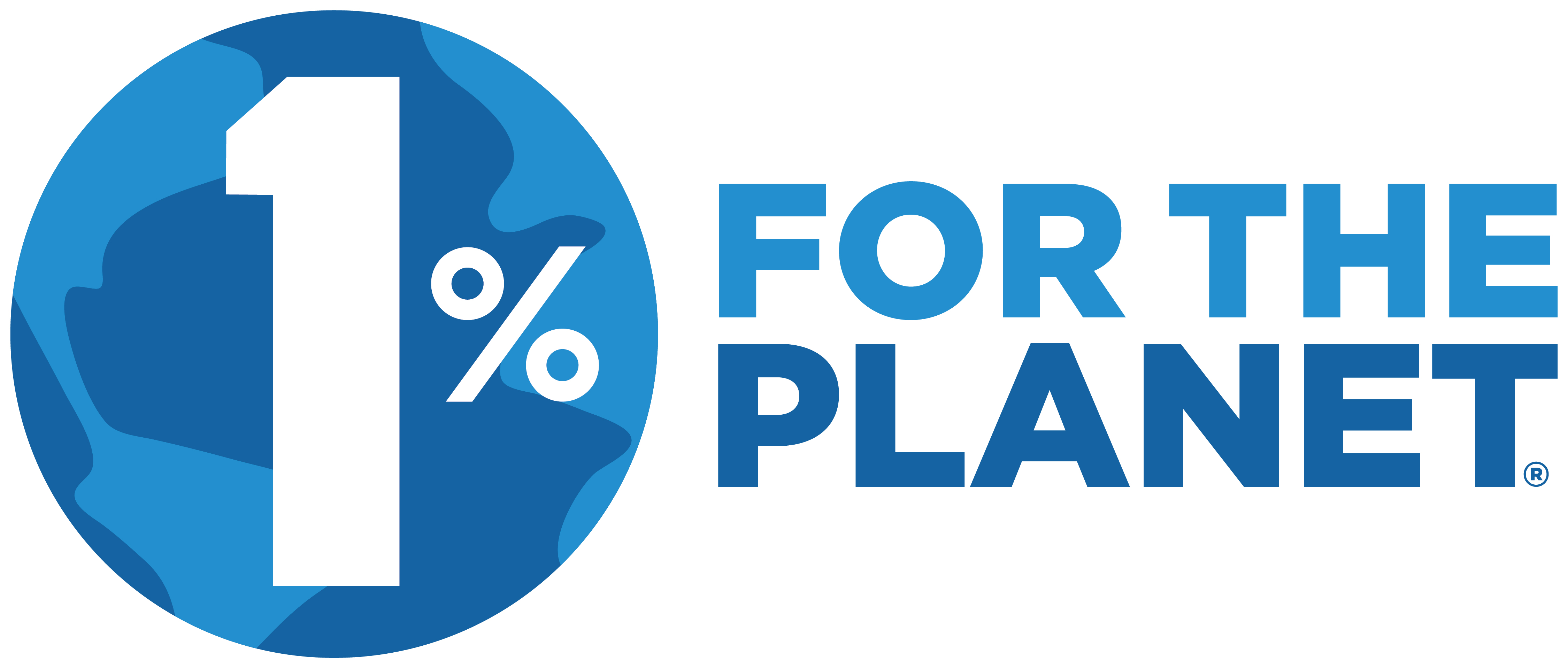
Host: 1% For The Planet
Project: Evolving the Strategic Portfolio to More Effectively Engage Start-Ups, Sustainable Ventures, and Social Enterprises in the 1% for the Planet Network
Founded by Yvon Chouinard of Patagonia and Craig Matthews, former owner of Blue Ribbon Flies, 1% for the Planet (1% FTP) is an environmental nonprofit leading a global network of more than 1,200 businesses, thousands of nonprofits, and individuals working together for the health of our only home. Collectively, members have given more than $150 million back to the planet since 2002. Traditionally, member companies who join the network agree to donate 1% of their annual sales directly to approved environmental nonprofits. The 1% FTP membership team advises and supports member businesses in developing nonprofit partnerships and, with its branded logo, provides credible third-party certification for company giving.
As the global business ecosystem continues to change, 1%FTP recognizes the need to examine its current business model and develop innovative solutions that better suit non-traditional businesses. The practicum team will conduct broad research (including primary interviews with member business and other companies, secondary research, and data analysis) to design a customized 1% FTP membership and network engagement model for start-ups and sustainable ventures that addresses the challenges they face, while creating shared value for the various stakeholders within the network. Additionally, the team will develop a strategic assessment tool for 1% FTP that helps to identify key qualities of a social enterprise based on mission and impact. Ultimately, the team will explore new product offerings beyond the traditional business membership.
Host: Eighty West
Project: Outdoor Lifestyle Tech Accessories Start-up
Eighty West is a tech accessories startup that lives at the intersection of outdoor lifestyle and technology, striking a balance between staying connected and being connected. Eighty West seeks to bridge a gap between these elements, while recognizing the adverse impact human consumption has on the very thing that enables our adventures: the earth. For this reason, Eighty West aims to identify and utilize innovative materials, creating a circular product life cycle, while also maintaining manufacturing transparency. Its mission is to enhance the experience of adventure with authentic outdoor lifestyle tech accessories, and in doing so, offer the conscientious consumer a greener alternative.
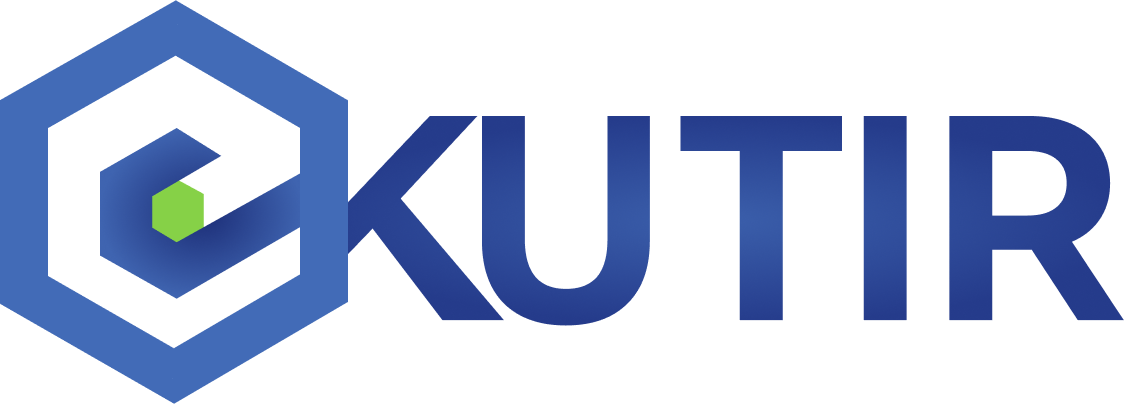
Host: Ekuti
Project: ICT-Based Solutions for Smallholder Farmers
eKutir, leverages a human digital platform to build a self-sustaining ecosystem to address various challenges of smallholder farmer poverty. Through the development of these digital applications, farmers are able to increase crop yield and profitability by 120-200% and lower costs by 70%. eKutir’s business model has currently engaged more than 70,000 farmers through its partners in three countries—India, Bangladesh, and Cambodia—and is planning to roll out to several Latin American and African countries in the near future. To meet this global demand, eKutir must understand the technological resources, community needs, and regulatory barriers to reach global scale. SEMBA students will work with eKutir to develop the next generation strategy and business model to encourage more rapid and effective scaling across developing and developed countries.
Host: Evergreen Capital/Kria
Project: Strategies for Therapeutic Botanical Market Development in Vermont
By leveraging the extensive natural healing properties of CBD (cannabidiol), the SEMBA team aims to develop a brand, market, and distribution strategy for a non-addictive and non-toxic alternative to commonly used Rx and OTC medications (including but not limited to: narcotic pain-killers, anti-inflammatory drugs, and psychotropic drugs). The primary goal is to contribute to the transition from conventional to natural medicinal alternatives, thus, specifically addressing the United States’ systemic dependency on synthetic treatments for symptoms often associated with high intensity occupations. In conjunction with the Kria Group, the Vermont Cannabis Collaborative, Evergreen Capital, and additional stakeholders, the SEMBA team will co-create a viable short term and long term strategy to enter and prosper in the CBD and therapeutic botanical market.

Host: Facebook
Project: Terragraph: Internet Access for the Underserved
Facebook Connectivity Lab's mission is to do the fundamental research to connect the 4.2 billion people who are without access to the Internet or underserved with limited connections to the Internet. Using new technologies built by Facebook’s Connectivity Lab, the company seeks to leapfrog traditional methods for connectivity and offer disruptive, innovative projects to connect the “last mile.” The SEMBA practicum project will work with the Facebook team on project Terragraph; one of the Connectivity Lab’s terrestrial internet solutions. This practicum project will continue the work started by a SEMBA Practicum team from last year’s 2015-16 class. The focus of the project will be on understanding the ecosystem in dense urban slums in India to build the value proposition of Terragraph technology, with a particular focus on non-users—particularly women and girls. SEMBA students will be conducting on the ground work to uncover challenges and solutions associated with the use and implementation of the technology. These findings will assist Facebook in determining a viable business model for project Terragraph in India and a framework for the rest of the world. The goal of the project overall is to create mutual value for businesses and the communities they operate in, creating a truly sustainable venture.

Host: Global Evolution
Project: Elaborating ESG and Sustainable Development Indicators for Emerging and Frontier Markets
Global Evolution is a Denmark based investment manager specializing in emerging and frontier market sovereign investments. Global Evolution actively promotes responsible investing and integration of environmental, social and governance (ESG) criteria in their investment decision-making process. They are widely recognized and respected experts and pioneers in this market segment.
The focus of the practicum is to: 1) Develop an updateable ESG framework supporting impact investing. 2) Create and refine country specific ESG cases for frontier and emerging markets. 3) Present reasons for integration of the information gained (from 1, 2) into Global Evolution’s investment and research processes.

Host: Ingersoll Rand
Project: Integrating Sustainability in Corporate Strategy
This practicum will focus on identifying new business opportunities that have the potential of becoming meaningful extensions of IR’s existing portfolio – opportunities that leverage IR’s core competencies, fit with IR’s commitments to sustainability, are based in Brazil and could either be organic or acquisition-based; food waste in Brazil specifically is the target for investigation. Agriculture is one of the largest contributors to GDP in Brazil, and food preservation along the value chain of farm-to-fork is a central concern from a sustainability standpoint. IR currently participates in the category of transport refrigeration. The team will identify specific areas of potential adjacencies to IR’s current offerings that are profitable, reinforce sustainability identity, are value creating, align with declared areas of IR’s unique competencies, and help reduce overall food waste in the target country. In addition to a set of recommendations for strategic moves in Brazil, the practicum team will also develop a case study that describes the evolution of Ingersoll Rand’s corporate strategy to reflect its current focus on sustainability.
Host: Noble Essence
Project: Sustainable Odor Destroyer
Noble Essence is an odor destroyer liquid solution, that utilizes sustainable sourcing of our core ingredients and sustainable business practices. Our product removes the toughest odors from people’s hands, including gasoline, nicotine, garlic, onion, and even fish. We will provide consumers with a solution that not only removes these tough common odors, but also disinfects and offers an array of options for a personalized fragrance touch.
This will be executed through multiple sustainable business facets along the value chain. It will begin with the sourcing of core ingredients, then to the sustainable production of the product, and lastly to the customer benefits offered. Many fragrance experts dwell in regions where our core ingredients come from in developing countries. In some of these areas, water scarcity is a major issue, such as India for example. A core part of this business model is tapping into this local knowledge and utilizing the local fragrance experts as key suppliers, while simultaneously providing them with a powerful, waterless, disinfectant available for their use.
Noble Essence will be brought to consumers in the local sourcing markets along with consumers here in the United States. Further market research will determine where the demand is for this product. During this practicum project, the overarching goal is to develop a business plan and engage in the initial steps in launching Noble Essence.
Host: Philips
Project: Creating A Business Model for Mobile Cervical Cancer Screening in Developing Countries
With Philips, the SEMBA team will work to develop a business model and market entry strategy for a medical device and/or screening service for cervical cancer screening and education in Kenya, that can be replicated into other emerging markets.
Currently, almost all cervical cancer screening devices in developing countries have been designed for use in developed countries. Up to three quarters of these devices do not function in their new settings and remain unused due to a lack of needs assessment, appropriate design, robust infrastructure, spare parts, consumables, and information for procurement and maintenance, as well as trained health-care staff. Additionally, cervical cancer screening devices are often underutilized because women do not know the benefits of being screened.
Community and primary health care in low resource settings require appropriate medical devices and technology with strong value propositions and business models to support more equitable access to health care. In this project, SEMBA students will work with the Philips Africa Innovation Hub in Nairobi, Kenya to scope such a business case linked to a viable business model, market entry strategy and appropriate action plan for the commercialization of the Philips’ mobile technology for cervical cancer screening. This business model and go-to-market strategy will support the launch of a mobile technology that has the potential to prevent deaths due to cervical cancer throughout the developing world.
Host: The Rustic Herbalist
Project: A Venture to Create a Sustainable, Mission-driven Start-up
The overarching goal is to create a financially feasible, sustainable enterprise based on the idea that business can be used as a force for good. Many companies seek third party certification and develop CSR strategies to appease growing environmental and social concerns from customers, particularly with agricultural products. This reactionary approach demonstrates a lack of concern from the business community and a complete focus on the bottom line. The purpose of this practicum however, is to launch a tea and spice company with all stakeholders in mind from the start. This venture will stand for sustainability and transparency, and be a stimulant for small-scale entrepreneurship. The Rustic Herbalist aims to change how consumers choose their spices, seasonings, and tea products.
This tea and spice company will bring radical transparency to the supply chain while creating shared value with the communities from which it sources ingredients. Rather than giving a percentage of profits as philanthropy, as many companies do, this company works directly with small farmers and communities to design social and environmental projects that truly benefit the people who need it most, while creating a resilient supply chain in the face of climate change.
Host: Seventh Generation
Project: Zero waste product development
Seventh Generation is one of the nation’s leading brands of household and personal care products designed with human health and the environment in mind. The company is continually innovating new and improved products to meet consumer needs, reduce costs, and improve product effectiveness. As a model for other companies and a leader in the personal care industry, they are working towards a comprehensive set of 2020 goals that continue to transform commerce, enhance health, and nurture nature. This practicum project will contribute progress towards the goal of a zero waste product line – specifically all products and packaging are either biodegradable or recyclable.
SEMBA students will join the Seventh Generation team to work on the diaper category- one of the biggest barriers to the zero waste goal. While SVG diapers certainly have sustainability benefits (less water used in manufacturing, no chlorine bleaching, FSC certified wood pulp), they are still a disposable product that end up in a landfill. In partnership with the internal fibers R&D team, they will develop concept articulations for different manifestations of diapers that effectively reduce landfill impact. Consumer insights and market research will influence the concept articulations and determine consumer appetite for new diaper concepts. Additionally, the team will assess financial viability of the proposition, formulate a channel strategy, and recommend a path forward.
Host: ThinkMD
Project: Strategy Analysis for a New, Inclusive Health Venture
THINKMD, a social venture founded in 2014, aims to expand healthcare access for everyone, everywhere. THINKMD’s product, MEDSINC, puts clinical assessment capability in the hands of mobile users. MEDSINC empowers minimally-skilled health workers in resource poor regions to accurately measure the sickness of children and automatically generates triage and treatment recommendations leading to accurate and timely intervention. Additionally, the product’s collection of critical public health data could change how the healthcare sector reacts to pandemic threats.
The SEMBA students will join THINKMD’s team to support their mission. Together, we will expand healthcare access and leverage data to create better health outcomes for all. The students will assess existing and alternative business models to help the THINKMD team hone the company’s corporate strategy as they prepare for commercial scale. Students will perform market and competitive landscape analyses to identify and confirm product differentiation and unique value proposition. This will inform commercial strategy, partnership objectives, market positioning, and alternative revenue model opportunities.

Host: VSECU
Project: Reinventing the Credit Union
How can a member-owned credit union bring people together to leverage cooperative ownership and invest in their community? The practicum will approach this challenge by working with VSECU leadership to develop projects that create value for members as a part of their financial community.
What if your bank not only facilitated financial well-being, but also measured and grew social and environmental wealth? The SEMBA practicum team will work with VSECU to build a personal prosperity score. This score will measure wealth in holistic terms—pairing metrics with education to assess progress towards true prosperity.
In addition, the practicum will work with Milk Money, a Vermont-based equity crowdfunding platform backed by VSECU, to evaluate the possibility of a pooled investment fund. The fund will aim to offer a more accessible and less risky means of investing in local businesses. The practicum will also explore other investment vehicles that offer returns to Vermonters while advancing VSECU’s vision.
2014-2015
Host: Ben & Jerry's
Project Title: New Sustainable Product
This project will explore business plan scenarios to shift to a non-GMO "Plus" standard or organic. What does that look like? How could it be achieved profitably for the farmers and Ben & Jerry's? How would customers respond? Is there price elasticity, etc. This objective is to explore product options for a new value proposition for the company.

Host: Burton Snowboards
Project Title: New Models for Sustainability
Background: Burton Snowboards is the global market leader in snowboarding and is working with a team from SEMBA to explore opportunities around decoupling growth from raw material consumption through possible alternative economic models.
Host: Casella
Project Title: Industrial Solutions
Casella seeks to eliminate the concept of waste. A key part of this strategy is the industrial solutions team that works on a consultative basis with large industrial customers nationwide. With team members that are placed full-time at a manufacturer's facility, they examine processes and waste/resource streams for opportunities for the customer to efficiently manage waste and renewable material, to ensure safe disposal of non-renewables, and to meet their resource sustainability goals. Currently, many of the company's customers are outside its core northeastern U.S. footprint. The company believes there are opportunities to scale this capability within that footprint, and integrate these services with existing company assets and expertise, especially with smaller customers in more rural and underserved environments. The practicum will involve working with the team's business development leaders on an investigation, analysis and recommendation of potential markets, customers, service offerings, and marketing of the company's industrial solutions capabilities.
Host: Casella
Project Title: Organic Waste Market Analysis & Strategy
Massachusetts has added commercial organics to its list of items that are banned from disposal in landfills and incinerators. The Commonwealth aims to divert an additional 350,000 tons per year of this material by 2020. Casella Organics currently operates two anaerobic digesters in Massachusetts and has opportunities to develop business partnerships on future facilities. The practicum will involve conducting a business analysis of food waste generation in eastern Massachusetts, and advising on business strategy.
Host: Keurig Green Mountain
Project Title: Market evaluation for scaling water purification technology
At CURRENT 2015, Keurig Green Mountain's first water summit held in Stowe, Vermont, Dean Kamen of DEKA R&D Corp. demonstrated a Slingshot water purification device and a prototype beverage center for offices or other public spaces. The beverage center prototype highlighted how Keurig Green Mountain (Keurig) and DEKA technologies could be integrated into a new product. Many technologies that have seen widespread adoption in the underdeveloped world - automobiles, computers, cellular phones, etc. - have high production volumes (and therefore low costs) because those products also serve many developed country market needs. Keurig and DEKA would like to explore the market opportunity for a Keurig/Slingshot collaboration that could, over time, achieve high production volumes and thus lower costs. The project is proposed and sponsored by Keurig - corresponding to the company value of Partnering for Mutual Success. The project is supported by DEKA. It is the intent of both organizations to identify an opportunity that will enable higher availability and affordability of the water purification technology thereby improving livelihoods and human health. In this project, students will evaluate the market opportunity for different Keurig/Slingshot product concepts in North American office breakrooms and public spaces. Students will draft a commercialization plan for the best opportunity.

Host: Novelis
Project Title: Closing the Loop in Aluminum
As the world's largest rolled aluminum producer, Novelis embarked on a strategy to close the loop in aluminum production thereby dramatically reducing energy use and greenhouse gas emissions. This strategy presents many important challenges in business and sustainable entrepreneurship. This project will focus on finding creative ways to partner and increase post-consumer aluminum recycling, including potentially leveraging local collectors and other stakeholders in the value chain in the development of the take back infrastructure around the world. The goal is to develop some win-win options for mutual value creation between the company and the communities involved.
Host: Novelis
Project Title: China Recycling Strategy
With Novelis' global recycling footprint, the company wants to have the capabilities to take and process scrap from anywhere. Novelis has built an automotive finishing plant in China, but with rising volumes of aluminum scrap in China due to a growing middle-class and increasing levels of consumption, it seems like an obvious move for Novelis to next put a recycling center there. But there is an effective export ban on scrap leaving China and perhaps a very difficult scrap market to break into with many challenges. How can Novelis develop a strategy to purchase and reprocess scrap from China? What should be the immediate next steps to move the company forward toward a long-term, sustainable strategy for closed loop aluminum in China? What are the risks? How can they be dealt with? This project requires a few meetings in Atlanta and trip(s) to China.
Host: Pepsico Latin America
Project Title: Business Development in Latin America
A project has been launched to assess PepsiCo capabilities and readiness to undertake business development across all social economic layers of the population pyramid in Latin America. Many opportunities were identified in PepsiCo's current portfolio as well as in premium categories for the top of the pyramid and nutrition focused for the base of the pyramid (BoP). The practicum project will engage students in the process of creating a value proposition focused first on the BoP taking into account both the business and corporate social responsibility.



